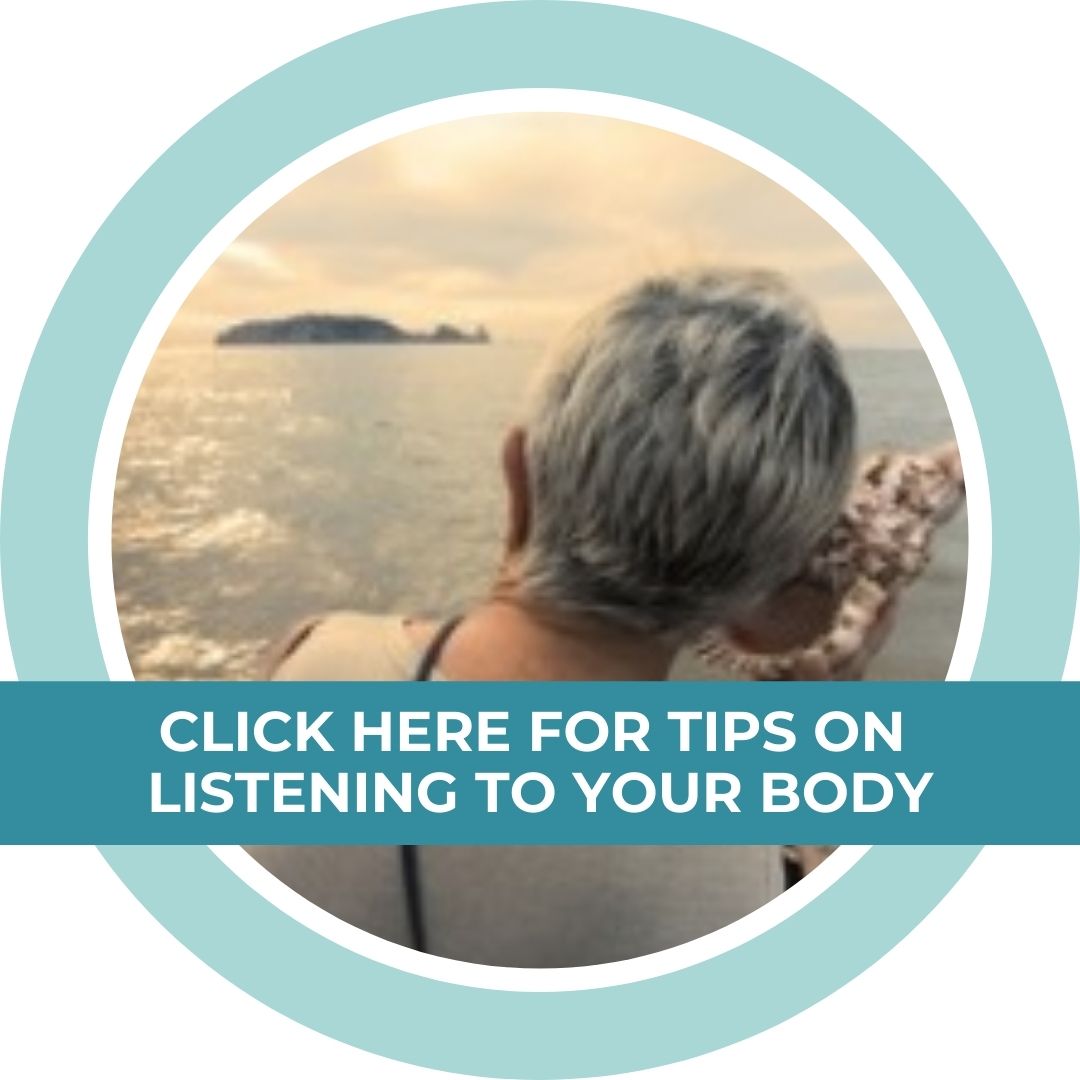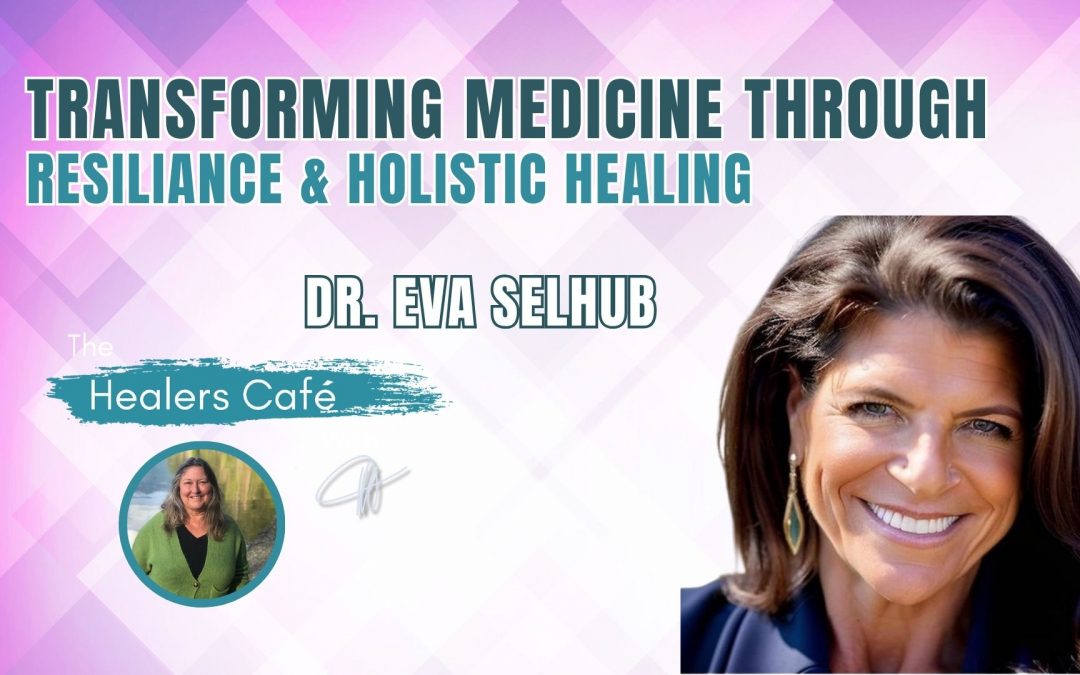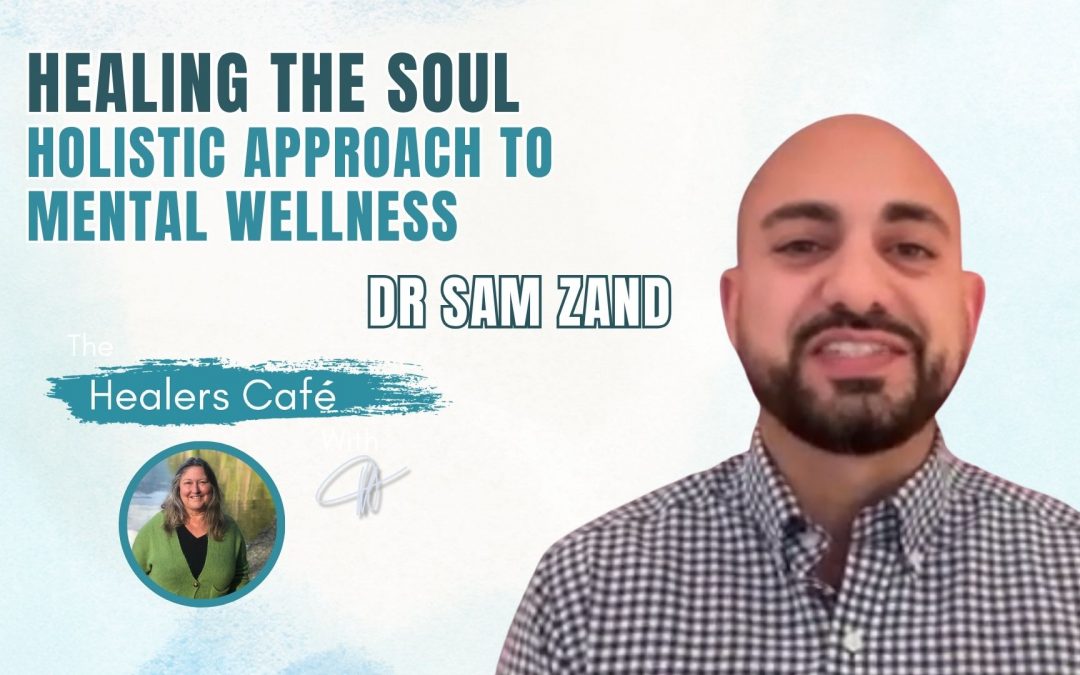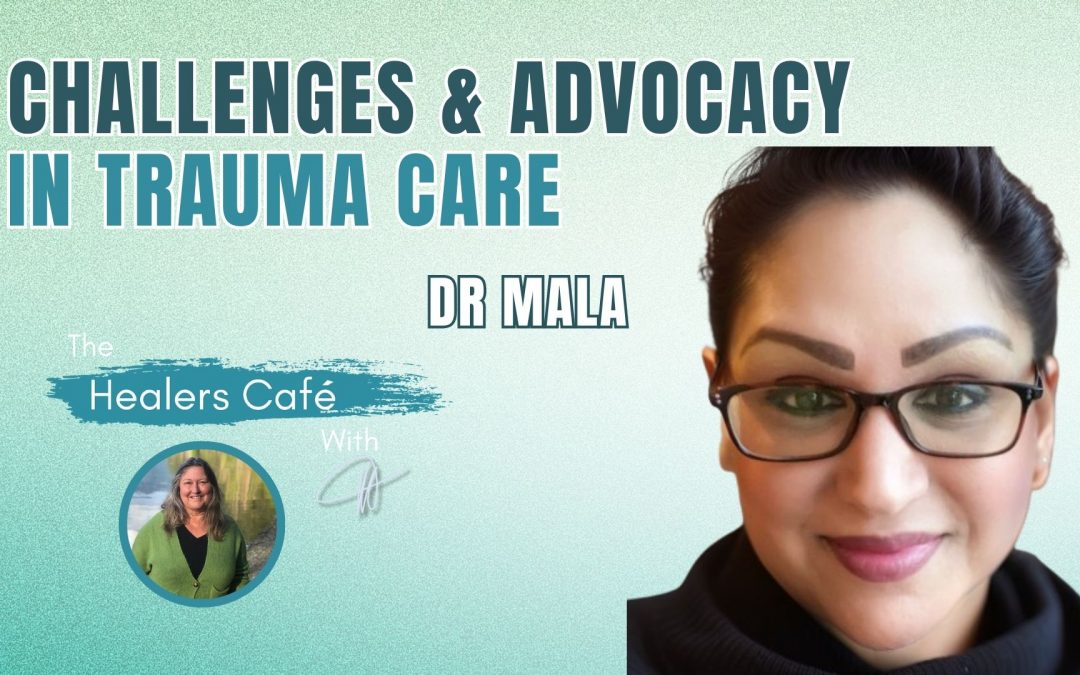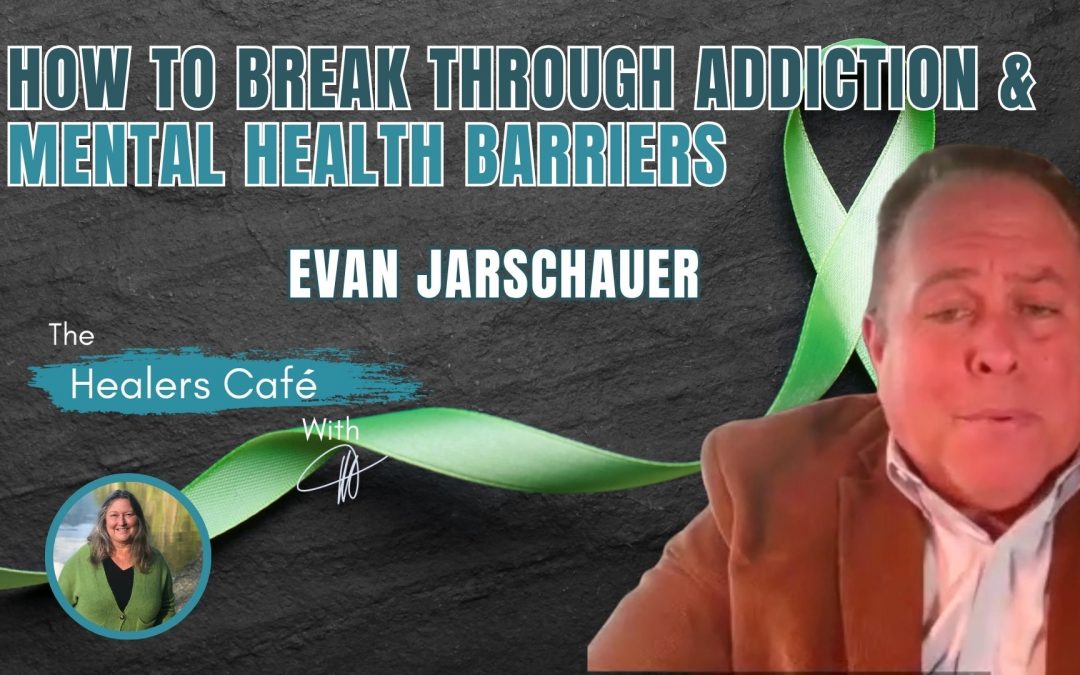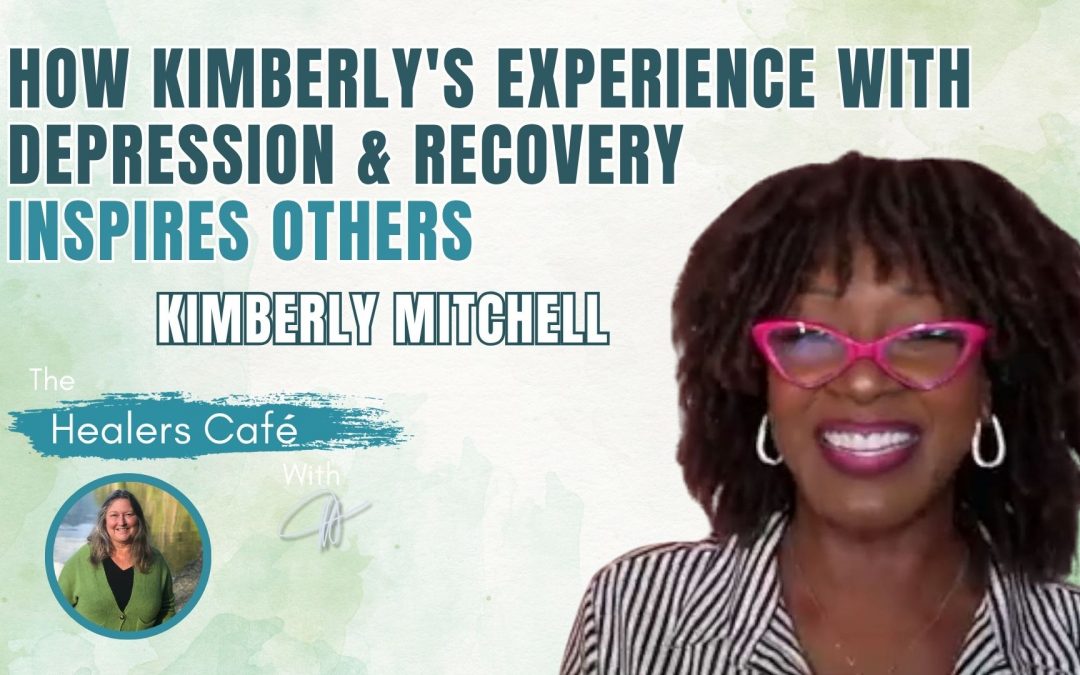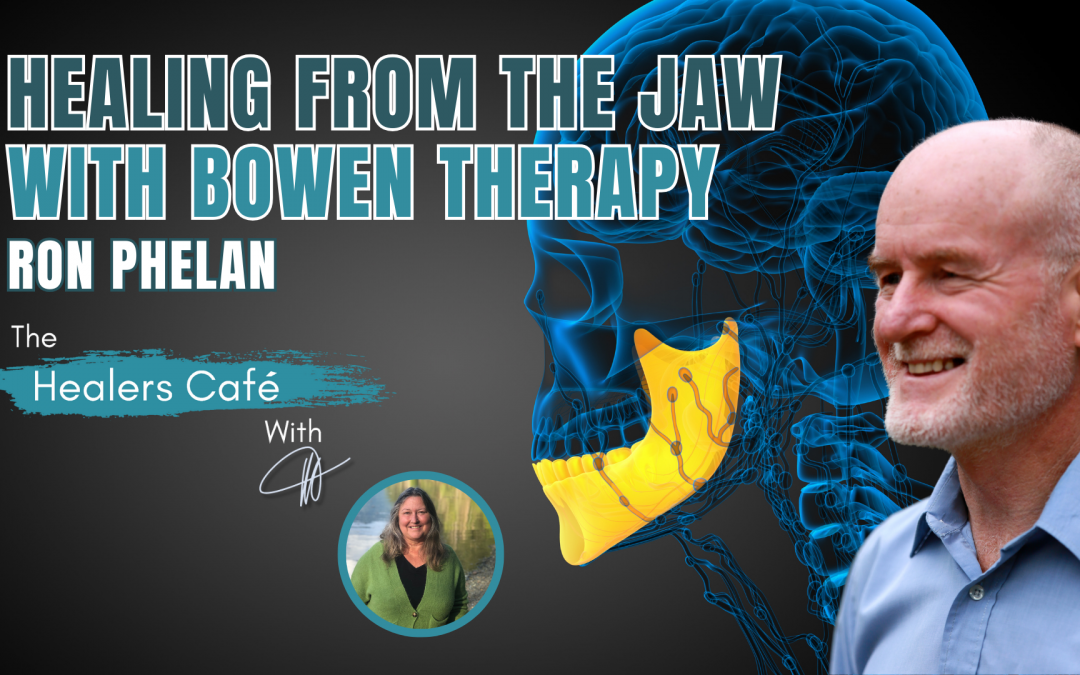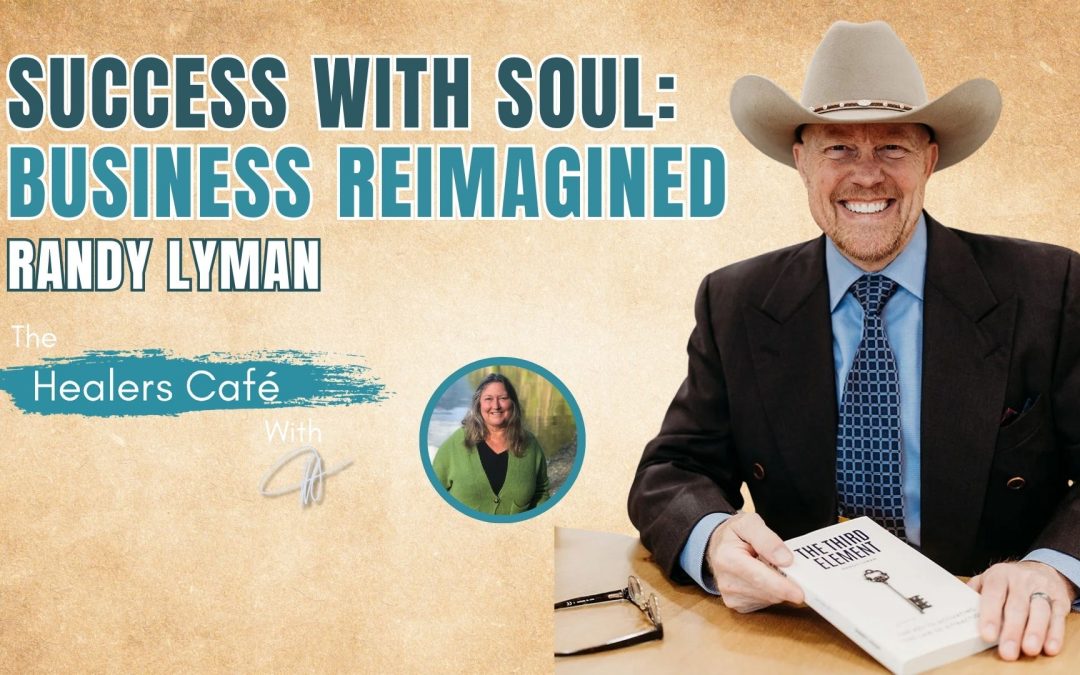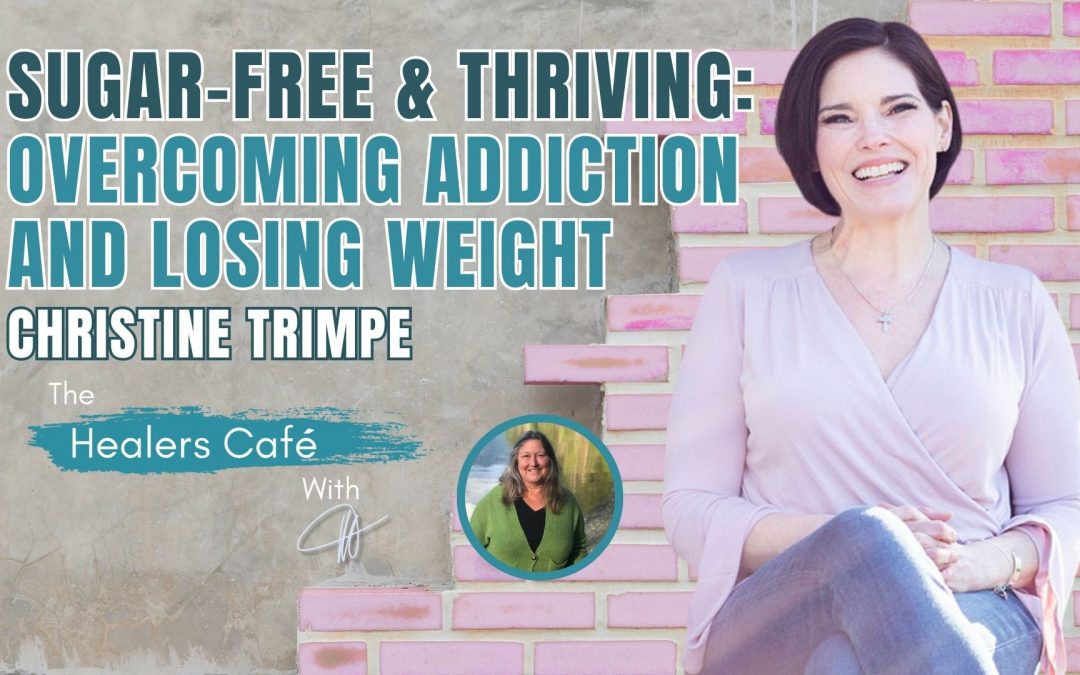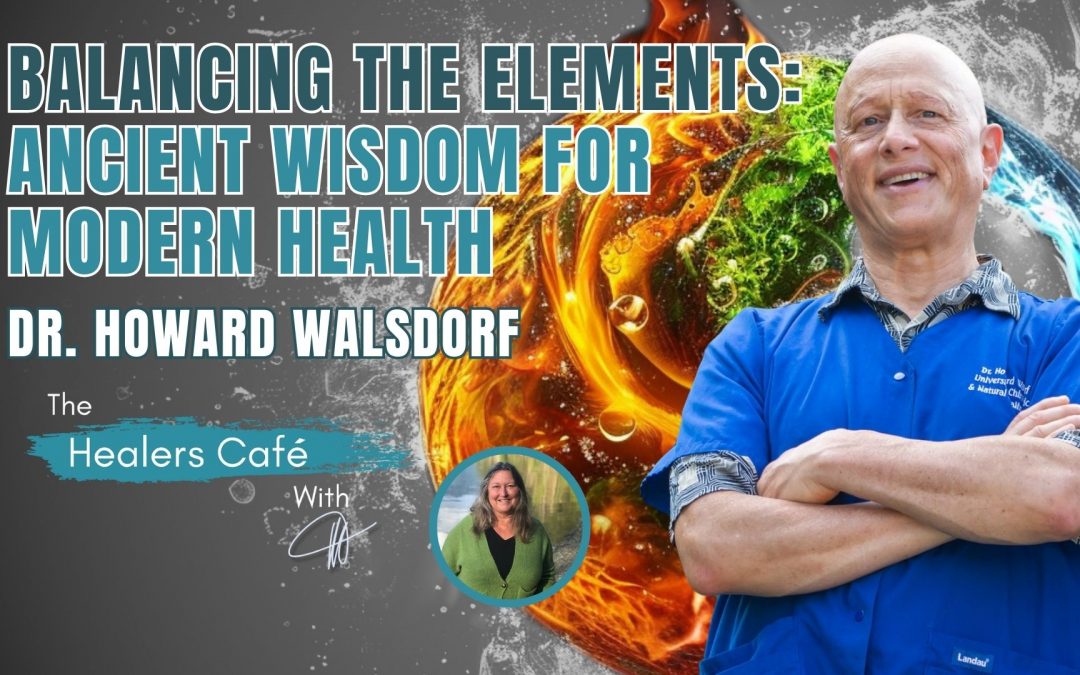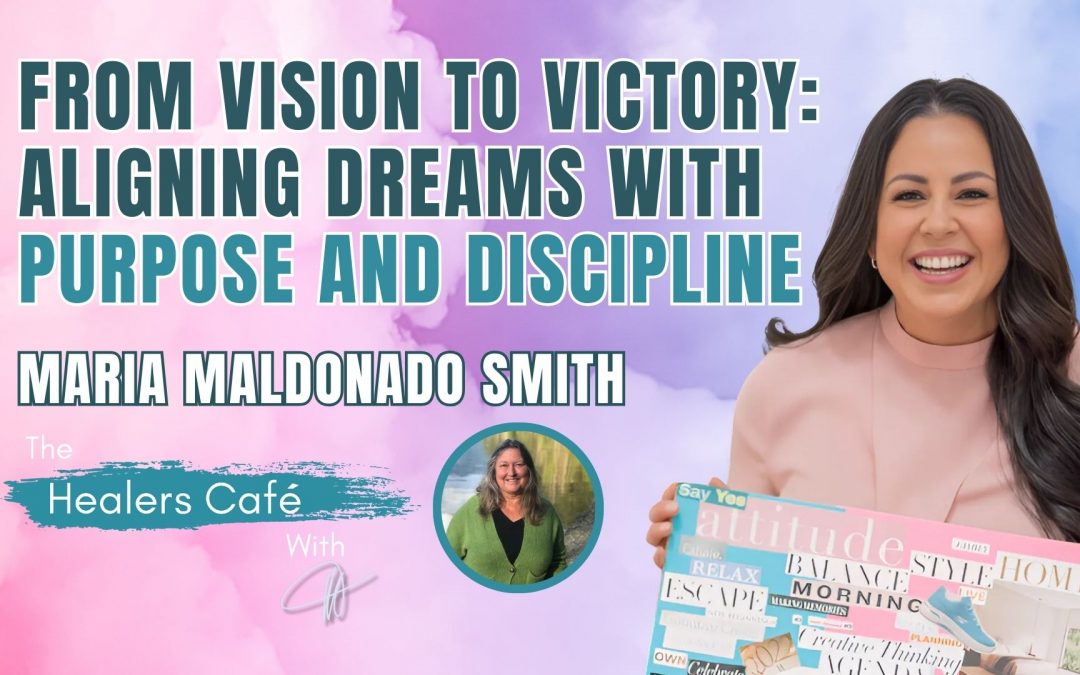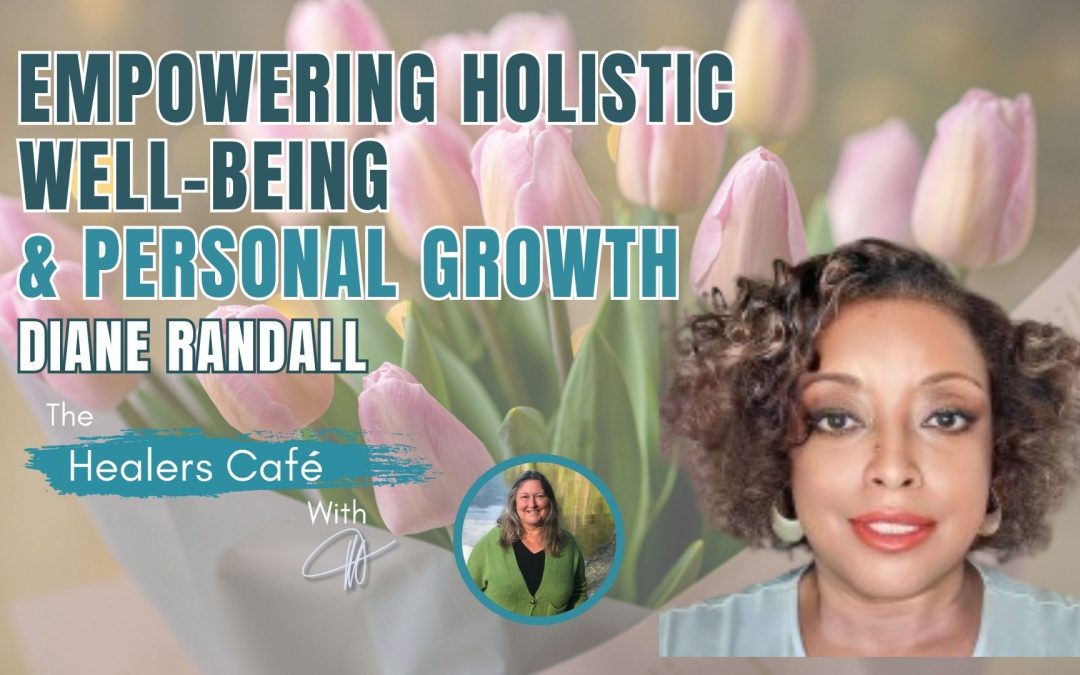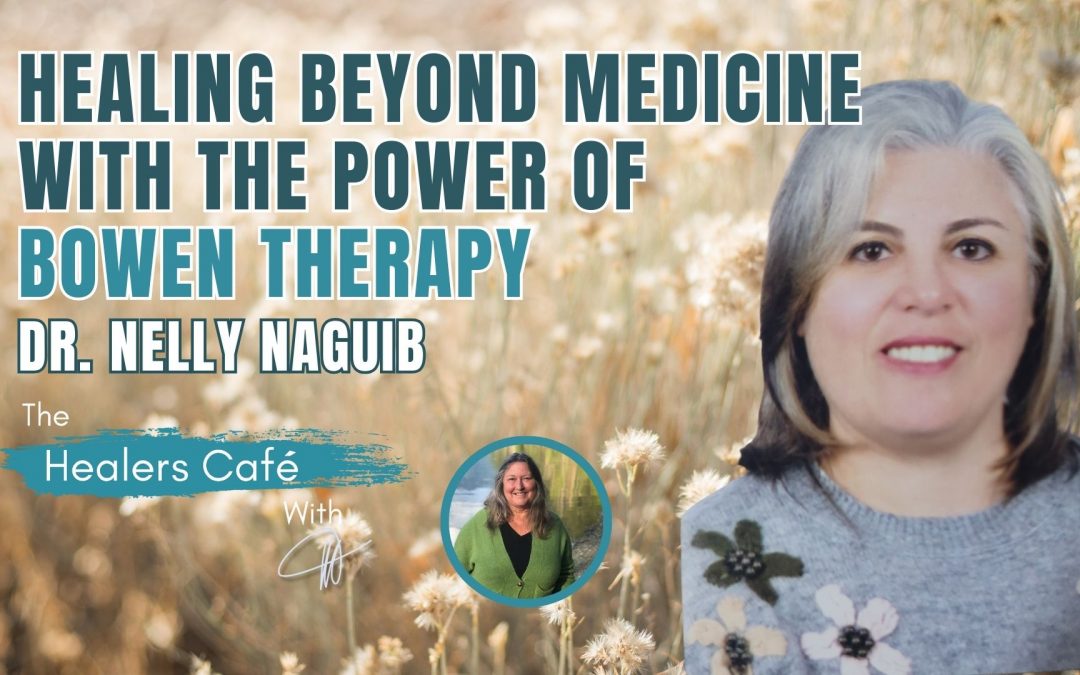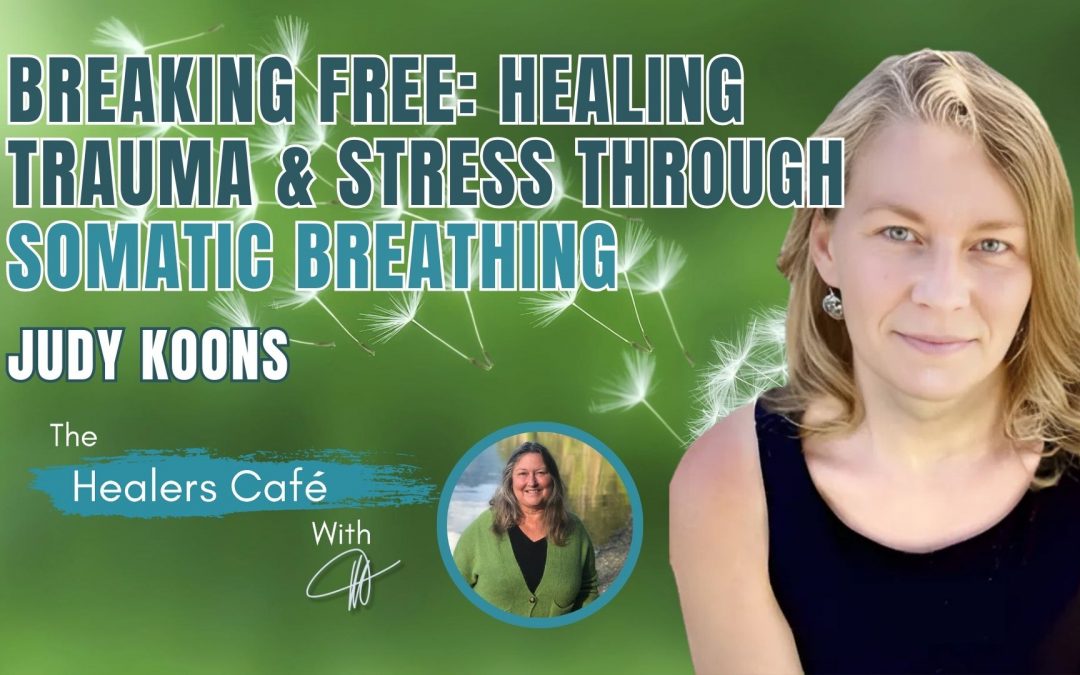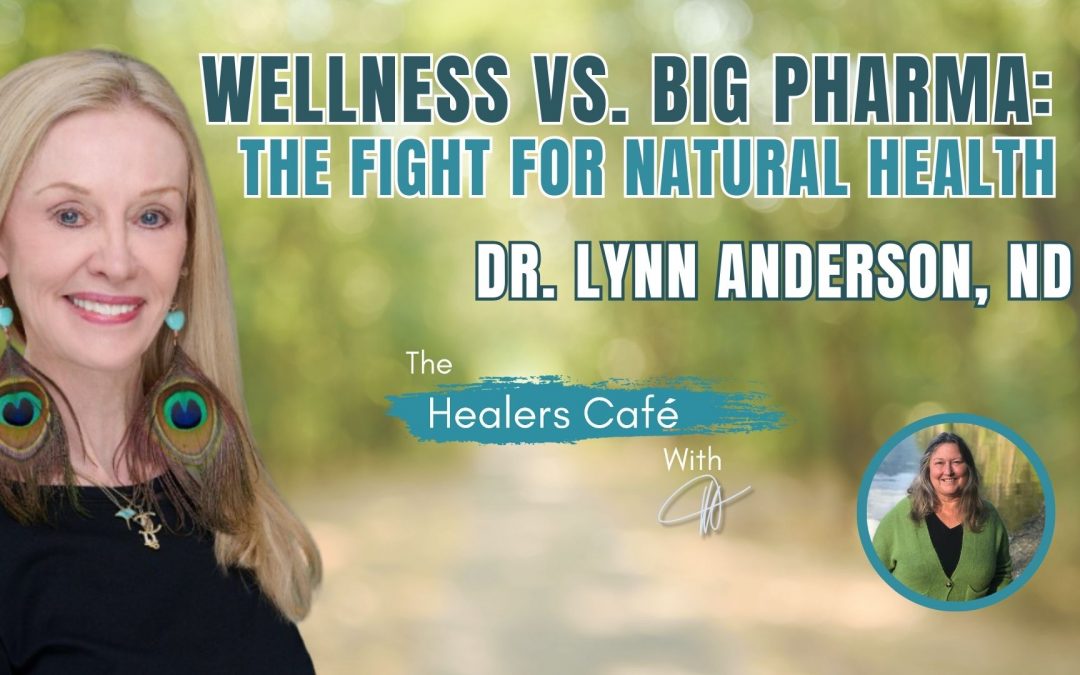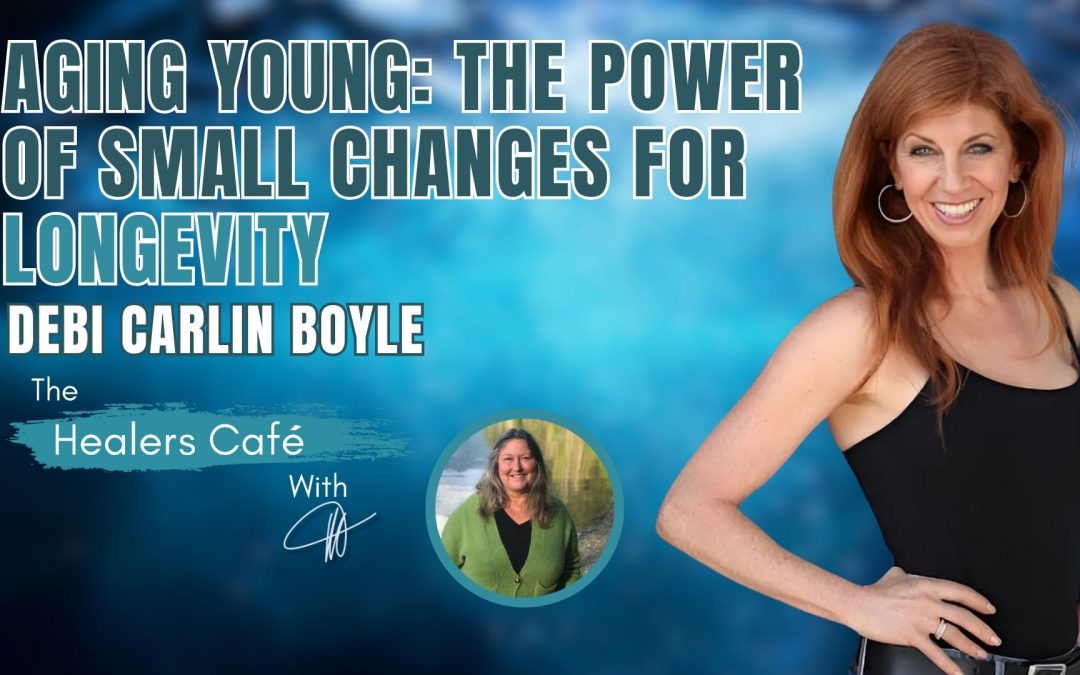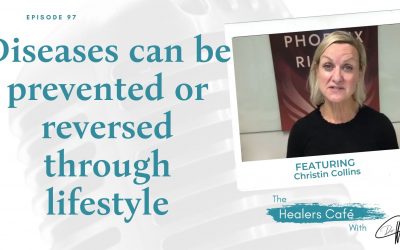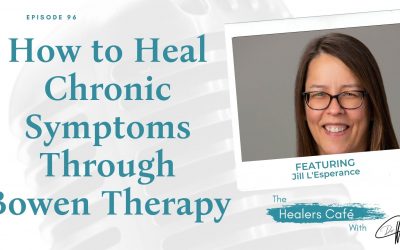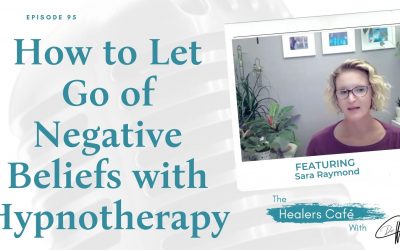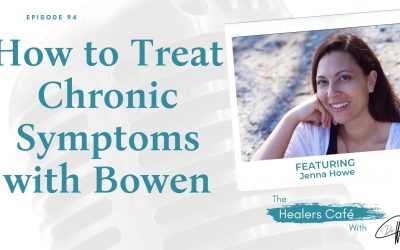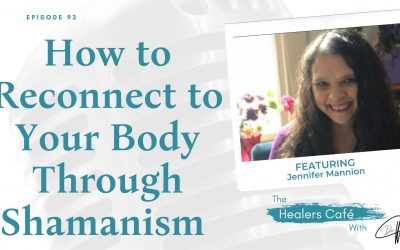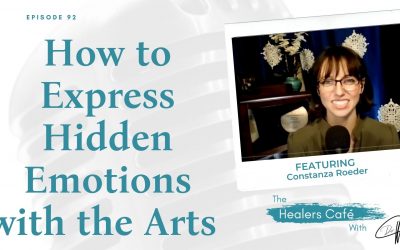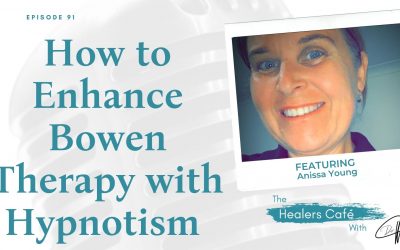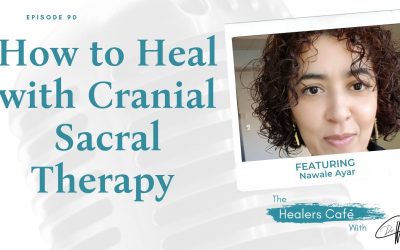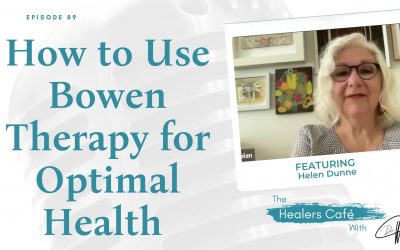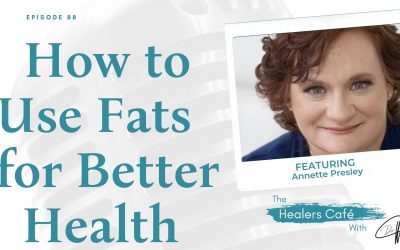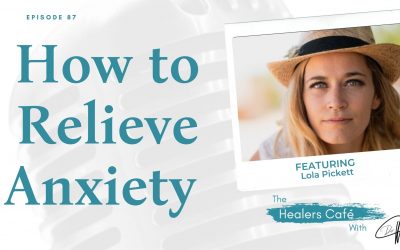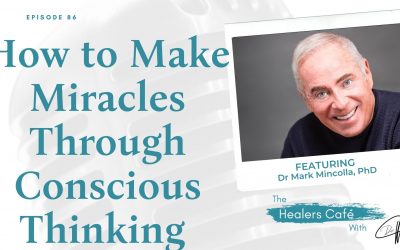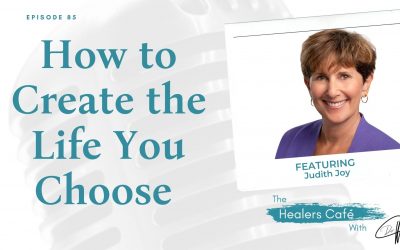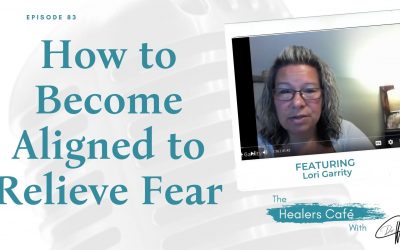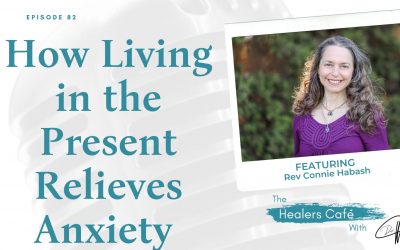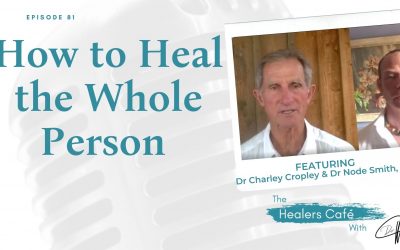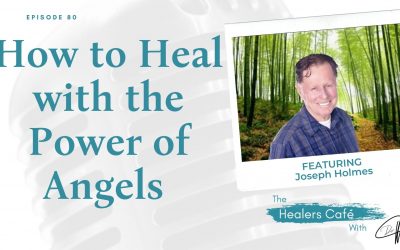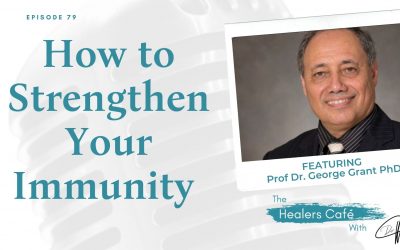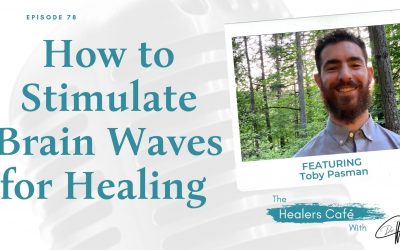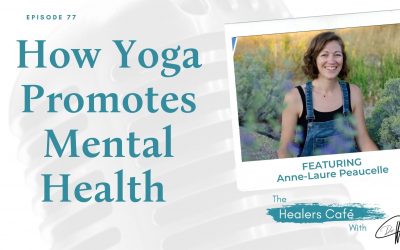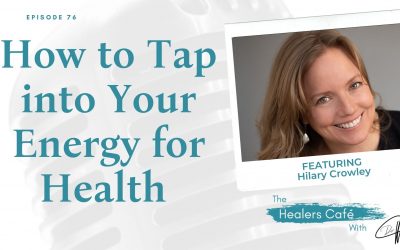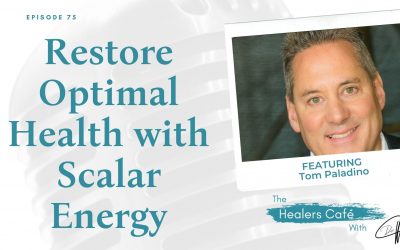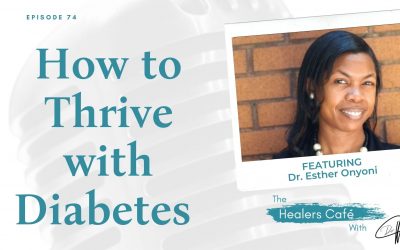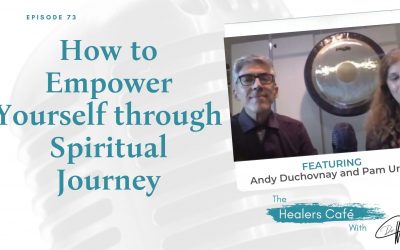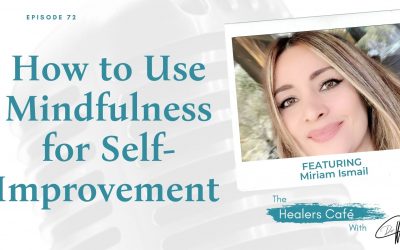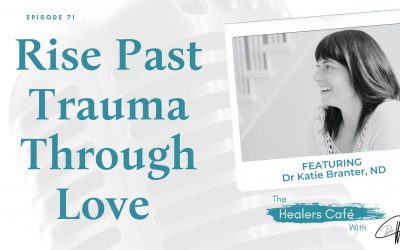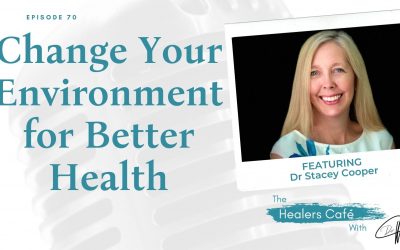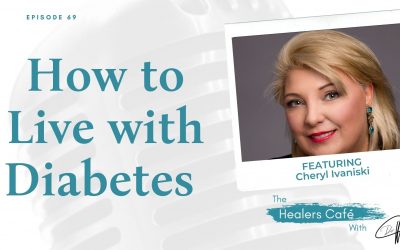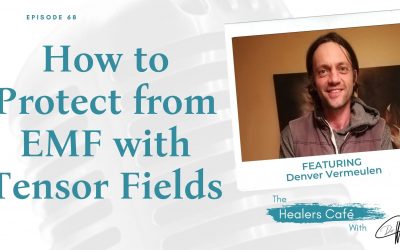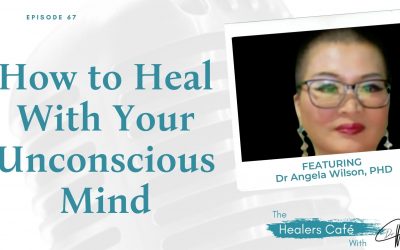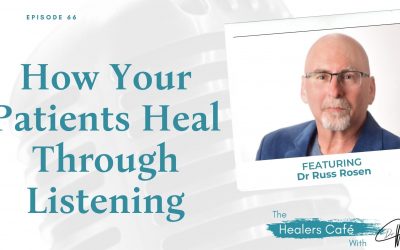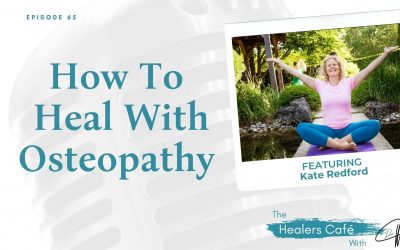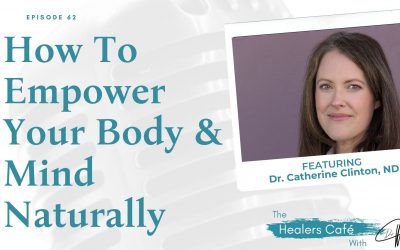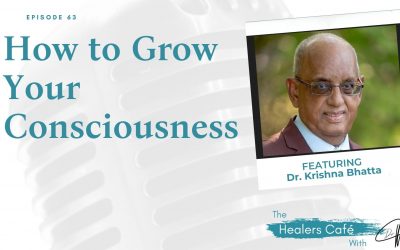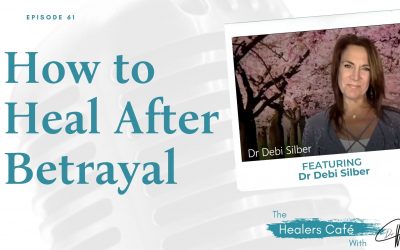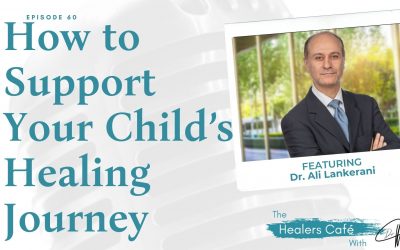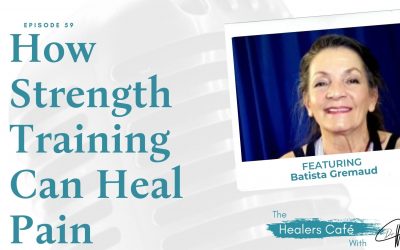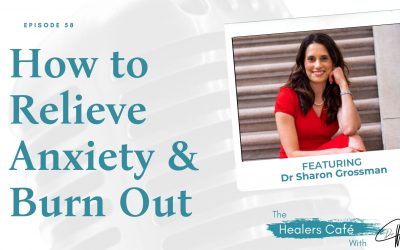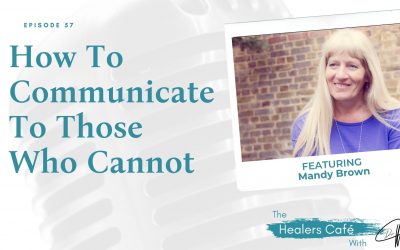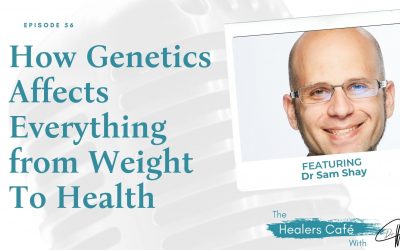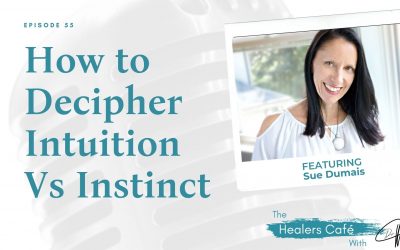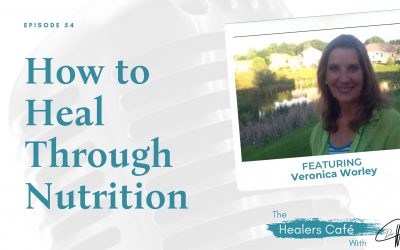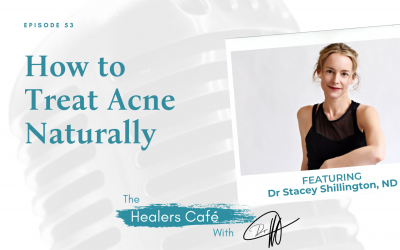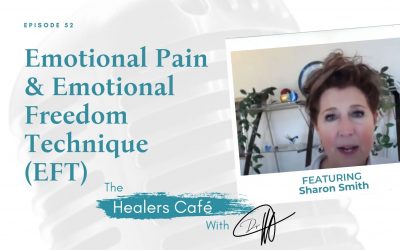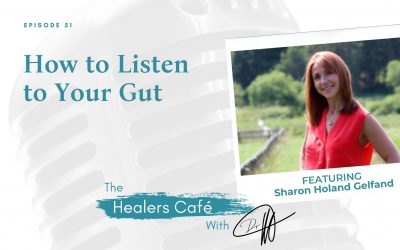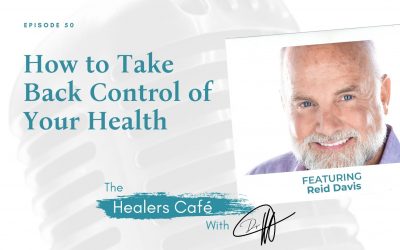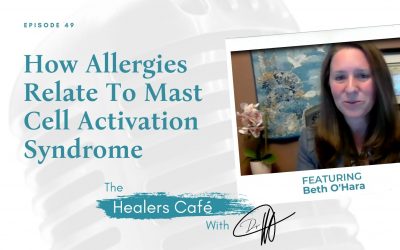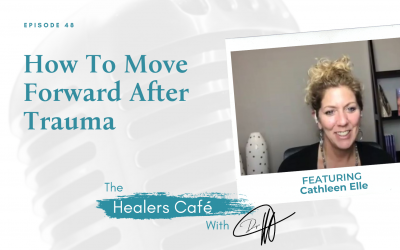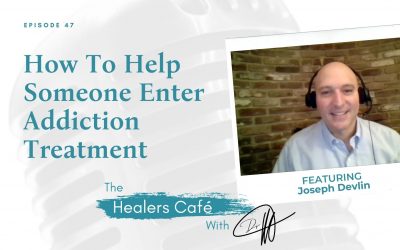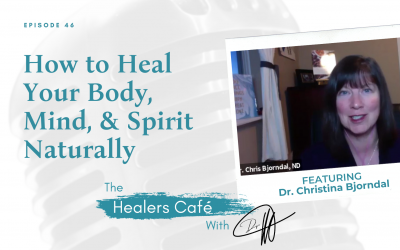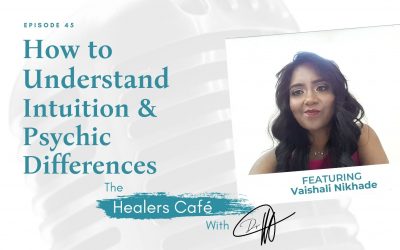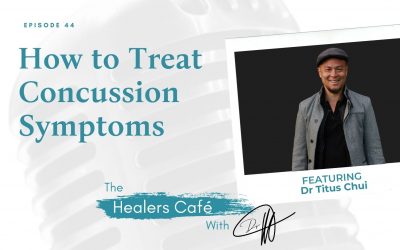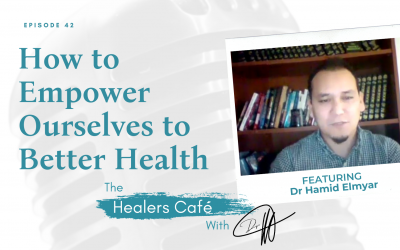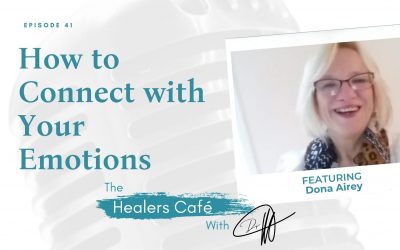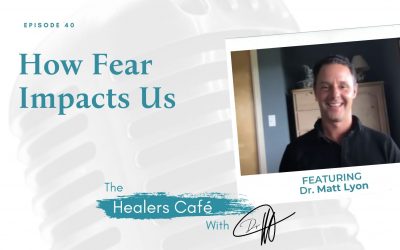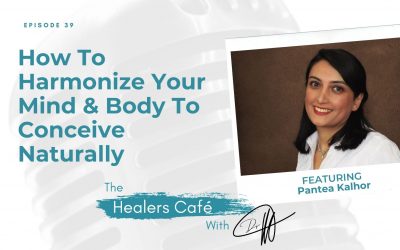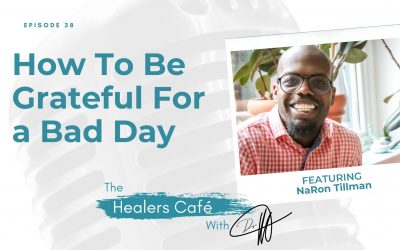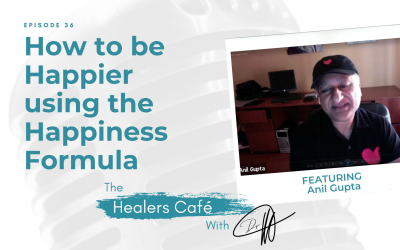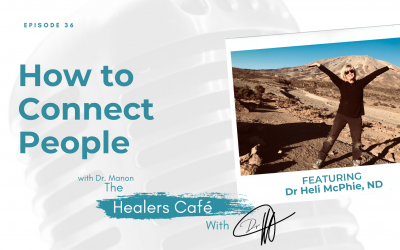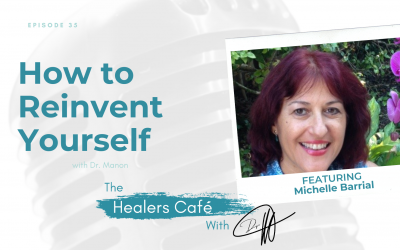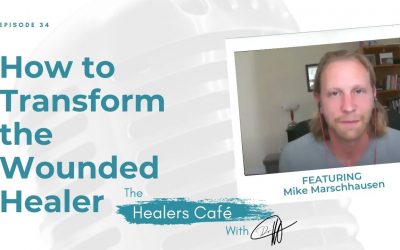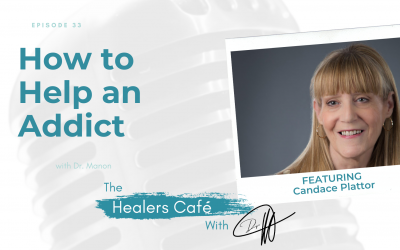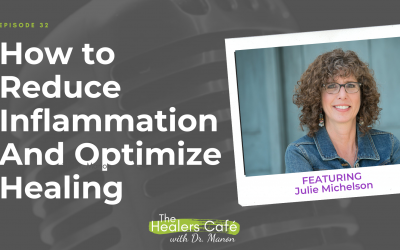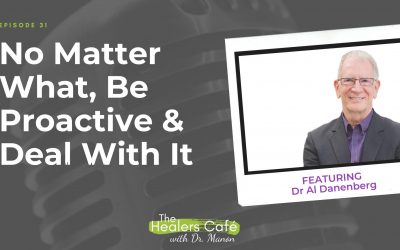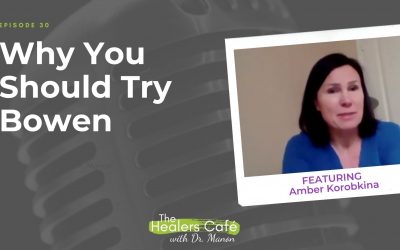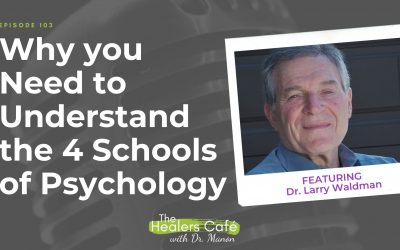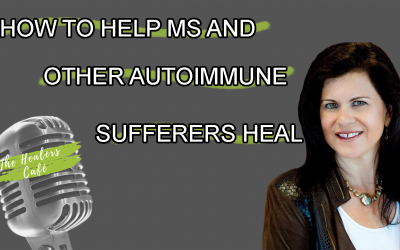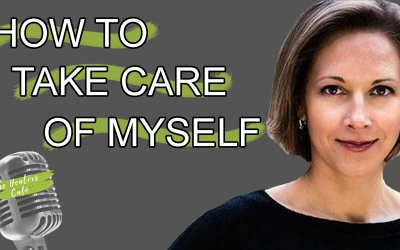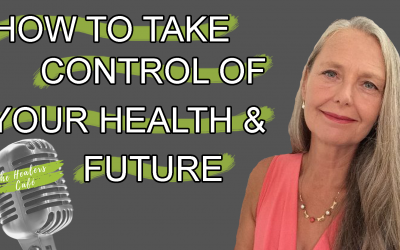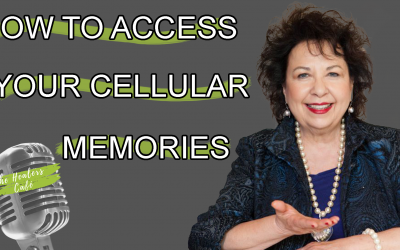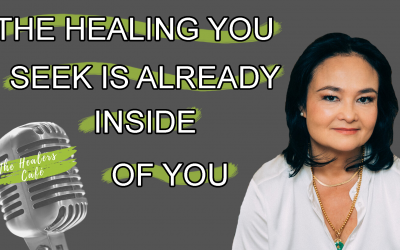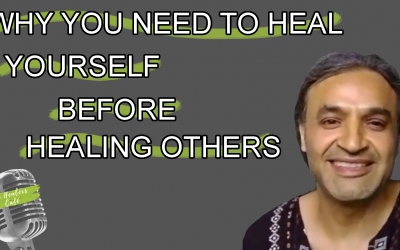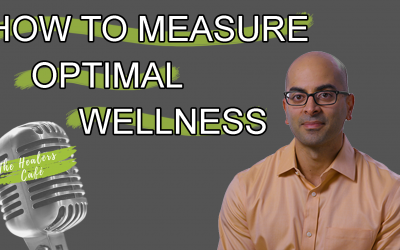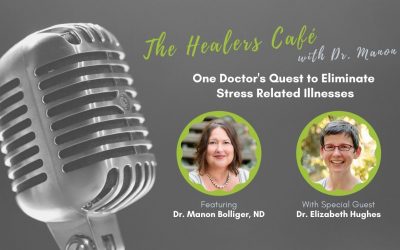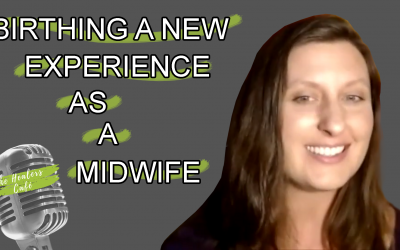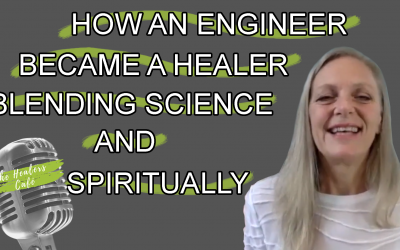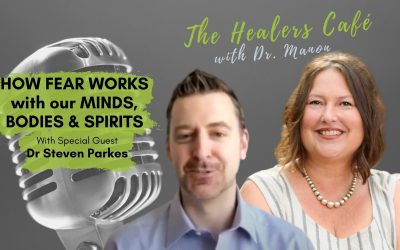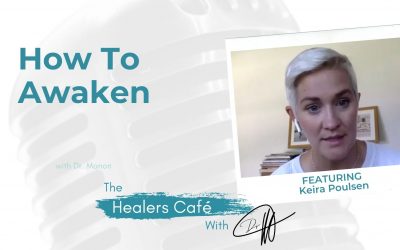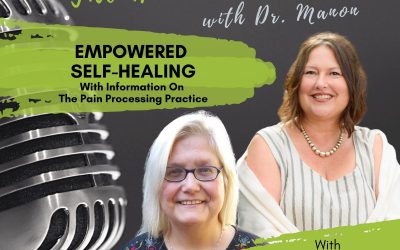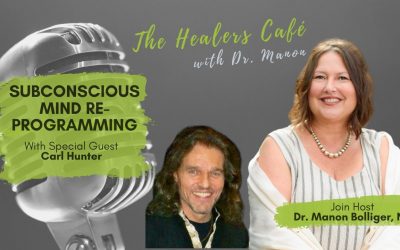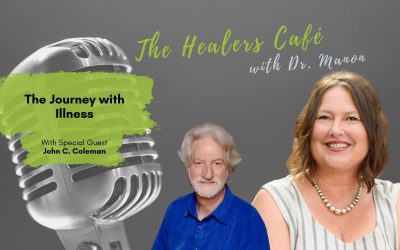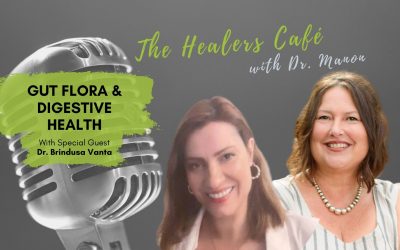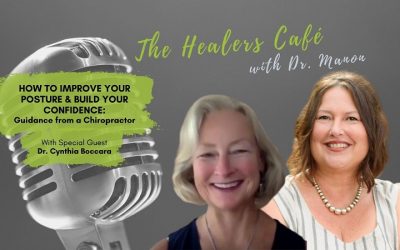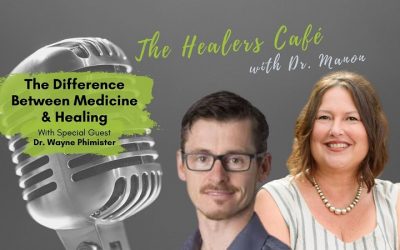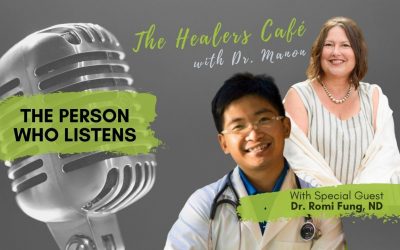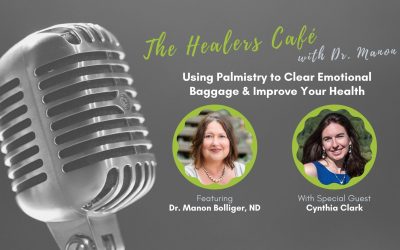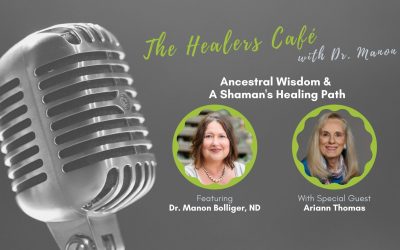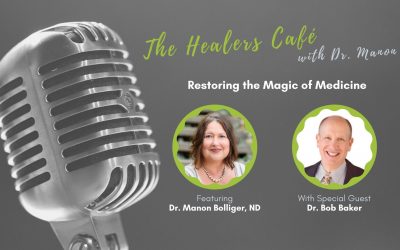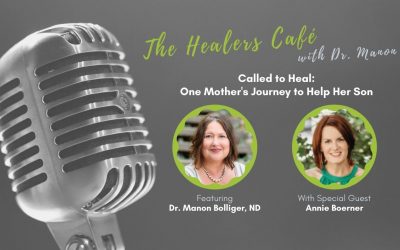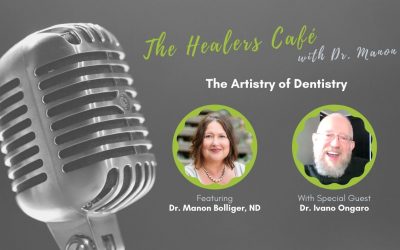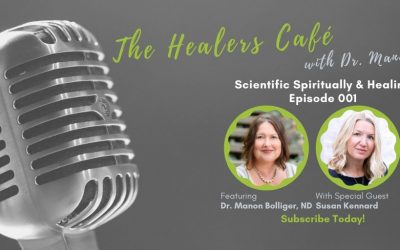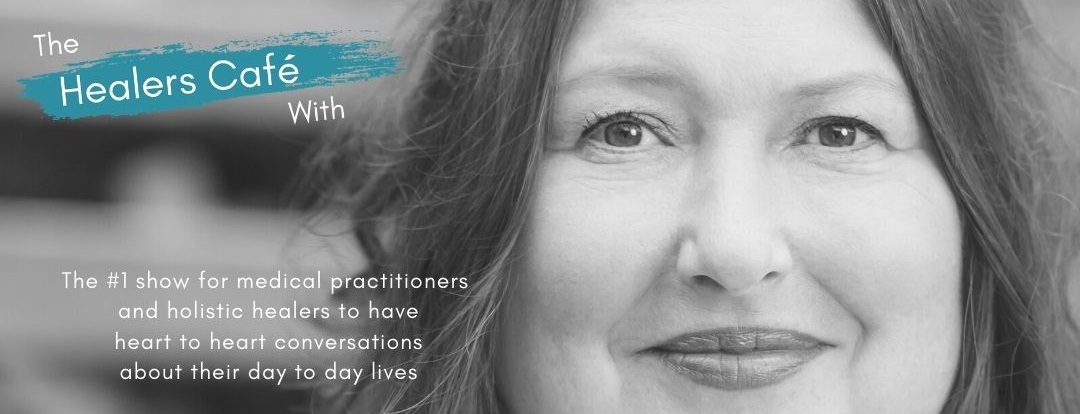
If you haven’t done so, would you please RATE and REVIEW The Healers Café podcast? It definitely is appreciated
Follow / Listen to The Healers Cafe on:
iTunes | Google Play | Spotify, | Libsyn | iHeartRadio | Gaana | The Healers Cafe | Radio.com | and many more
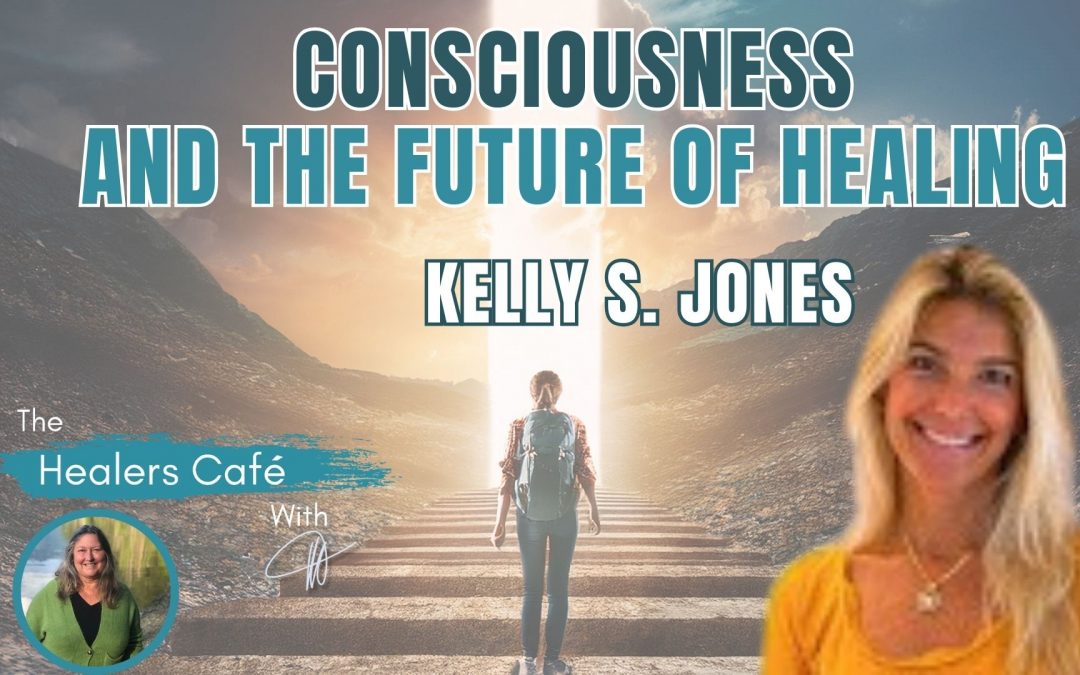
Kelly S. Jones
Consciousness, and the Future of Healing with Kelly S. Jones & Manon on The Healers Café
Kelly S. Jones, a spiritual catalyst with 25 years of experience, discussed her journey into healing, including her first Saturn return, group therapy, and discovering Feng Shui. She emphasized the importance of the Akashic records, which capture soul experiences, and their role in personal transformation.
Highlights from today’s episode include:
Kelly S. Jones says akashic records help clear fear and old identities so people can live their soul’s truth.
Kelly S. Jones explains a new wave of 7–9-year-olds carry key gifts for humanity’s transformation.
– – – – –
Manon explains after surrendering her naturopathic license and moving through deep grief, Manon is in a “pregnant pause,” sensing a much bigger next chapter.
ABOUT KELLY S. JONES:
Kelly S. Jones, known as a spiritual catalyst, masterfully guides her global clientele to transcend fear, reclaim truth, and awaken to their soul’s purpose, power, and potential both personally and professionally. Her work of 25 years as a transformational life coach, author, teacher, and healer is anchored in the Akashic Records, Feng Shui, and Energy Healing. Kelly helps people find their authentic voice and live in alignment with their truth through her signature trifecta — a powerful fusion of intuitive insight, energy transmission, and practical tools that catalyze lasting soul-level transformation. Her own personal journey has been her greatest teacher and awakener.
Core purpose/passion: To bring love, wisdom, insight, healing and guidance of the highest caliber to those ready to receive and willing to step into the highest version of themselves.
ABOUT MANON BOLLIGER, FCAH, RBHT
As a recently De-Registered board-certified naturopathic physician & in practice since 1992, I’ve seen an average of 150 patients per week and have helped people ranging from rural farmers in Nova Scotia to stressed out CEOs in Toronto to tri-athletes here in Vancouver.
My resolve to educate, empower and engage people to take charge of their own health is evident in my best-selling books: ‘What Patients Don’t Say if Doctors Don’t Ask: The Mindful Patient-Doctor Relationship’ and ‘A Healer in Every Household: Simple Solutions for Stress’. I also teach BowenFirst™ Therapy through Bowen College and hold transformational workshops to achieve these goals.
So, when I share with you that LISTENING to Your body is a game changer in the healing process, I am speaking from expertise and direct experience”.
Mission: A Healer in Every Household!
For more great information to go to her weekly blog: http://bowencollege.com/blog.
For tips on health & healing go to: https://www.drmanonbolliger.com/tips
SOCIAL MEDIA:
– Linktr.ee | Rumble | Gettr | Facebook | Instagram | LinkedIn | YouTube | Twitter |
About The Healers Café:
Manon’s show is the #1 show for medical practitioners and holistic healers to have heart to heart conversations about their day to day lives.
Subscribe and review on your favourite platform:
iTunes | Google Play | Spotify | Libsyn | iHeartRadio | Gaana | The Healers Cafe | Radio.com | Medioq | Audacy |
Follow The Healers Café on FB: https://www.facebook.com/thehealerscafe
Remember to subscribe if you like our videos. Click the bell if you want to be one of the first people notified of a new release.
* De-Registered, revoked & retired naturopathic physician after 30 years of practice in healthcare. Now resourceful & resolved to share with you all the tools to take care of your health & vitality!
TRANSCRIPT
Introduction 00:00
Welcome to the Healers Café. The number one show for medical practitioners and holistic healers, to have heart to heart conversations about their day to day lives, while sharing their expertise for improving your health and wellness.
Manon Bolliger 00:20
Welcome to the Healers Cafe, and today I have with me Kelly Jones, and she’s known as a spiritual catalyst, masterfully guiding her global clientele to transcend fear, reclaim truth and awaken to their souls, purpose, power and potential, both personally and professionally. Now she’s been doing this for 25 years, working as a transformational life coach, an author and a healer, and she’s anchored in the Akashic records, Feng Shui and energy healing. I think I’ll stop it right there for the bio. And we talked a few minutes, because timing is everything. And so I was really interested in Feng Shui, so you I gave you permission to open my books, and that’s sort of we’re ready with that. But before we go there, could you tell us a little bit about your your journey into healing and and then, how did you get, you know, connected to this as a pathway?
Kelly S. Jones 01:37
Great question. So I was actually, I don’t know who knows astrology very well, but it’s called your first Saturn Return. It’s around 29 years old or so. And it was interesting, because my father died and his mother died. So kind of my two favorite people in the whole wide world, right? They left the planet. And it catalyzed me into looking at my own life and married with two young children, and decided that I needed to leave my marriage. That led me into for sure, group therapy. I was like, Okay, we need some help here, right? Who am I and how do I love myself more? Because I didn’t realize I wasn’t. And in that, in that gathering, and one of the gatherings, one of the women mentioned feng shui, and I was literally not supposed to, quote, unquote, hear that conversation was across the room, and I was like, Excuse me, I need to go find out what that was. And when I did that, I asked her to come do a consultation for me, and it intrigued me so much. It was so in my in my bones, and I wanted my own business for a long time. And I thought, I mean, those two hadn’t married up right away, but as I was starting to learn and for myself, to heal my space and myself, I was like, Okay, this is, this is something I want to pursue so fast track down the road. I’m teaching for my master teacher, who’s a grand master now, and he, one of my students, said, Can I do an Akashic Record reading for you? And I was like, Okay, I’ve done everything, right? I’ve heard of everything. I’ve done everything at this I don’t know. And so I was very skeptical, and I was like, I don’t know about that. You know, what are they and and what is it about? And so I’ll share with you, right, because your Akashic records are open, as we agreed to before we started today, and the Akashic records are really a recording of our souls, everything since we individuated from source. So our thoughts, our words, our actions, our choices and our inner relationships with people. So the past, the present, the potential future is in there. So I’m taking my or I’m having my first session, and I’m guided and asked to take the class. I was like, I’m just starting in Feng Shui. What that’s, you know, only so much I can balance, you know, Mother, full time job, learning these things and trying to, you know, juggle it all. And I’m so grateful I did. It was like, probably the best choice, one of the best choices I’ve ever made in my life. And then that spun years later into really spirit. I was setting up my healing room and Spirit literally, and I’d done some Reiki classes, and I did an energy healing course with another master teacher, Roseland Briere, and I literally coming out of the ceiling. Was, do Christ, Christ light, l, I G, H, T, Christ light transmissions, and I literally ducked Manon. I was like, okay, you know, I ducked. I looked up and I said, of course, but I need to know what they are and how to do them, so that all dovetailed and became. Like the Chinese speak of the trinity of energies, which is heaven, human and earth. So I do feng shui, which was dovetailed with astrology. I do the Akashic records. And that’s, you know, Earth energy, Heaven energy, and then human energy. So became a I watched it slowly unfolding. I was like, this is fascinating, what spirits guiding me to do. So here we are today.
Manon Bolliger 05:25
So, so how did that change? Sort of how you’re approaching, you know your your interventions with people, or your facilitations, and you know, interventions too strong a word, but I was called to say it. So interestingly,
Kelly S. Jones 05:46
I appreciate you saying that, right? That awareness Interesting. Yeah, it is very interesting. Well, and maybe it’s due to even the times that we’re in that we were kind of speaking right earlier, right? It’s like there’s, yeah, right, we’re wanting ..
Read more...
divine intervention. I mean, we’re all wanting it at some level, whether it’s at a personal level, interpersonal level, or, you know, global, right? So really, it’s about helping people to navigate their own personal journey and how they can center in themselves, right? Return to the core of their being. Move Move aside, if you will. Kind of, I’m seeing the parting of the Red Seas. It’s like, how do you part the Red Sea in order to get back to the truth of you? And that’s what the Akashic records is very profound at doing, and dismantling the fears and dismantling the beliefs and the old identity that is not allowing people to achieve and arrive at the the new thresholds of their, of their greatest self, 100%
Manon Bolliger 06:47
Yeah. I mean, it is. It does feel like we’re, we’re in that time now you know where it’s it is happening. Oh, yeah, more and more
Kelly S. Jones 06:57
Wave has hit,
Manon Bolliger 06:59
very exciting, yes, so I guess, I mean, my show is about healing, and awakening is part of the healing process, and it’s, you know, it’s looking in and and allowing whatever comes up that needs to be seen, heard or expressed To come out, right? So I’ve never been too attached on how, though, you know, I’ve had, I’ve had some modalities, and I run a college actually, so there’s definitely some attachment to a method I trust and, you know, have confidence in seeing results. And it’s very simple, because usually these things are simple, we complicate very well said, yes, yeah, but I personally, I feel at a it’s like in a waiting time,
Kelly S. Jones 08:00
pregnant pause?
Manon Bolliger 08:02
Yeah, maybe it’s a pregnant pause, but it’s been for a while now, this little pregnant pause, you know, so, so I guess I’m curious if there’s anything that you can see, or how you would address that you know. Like, I’ve never been a dispassionate person. And you know, I did lose my license as a naturopath, but, I mean, willing fully, I actually did it through common law properly so that I’d have nothing to do with the these bodies. If I was, I mean, I wasn’t going to go against my oath as a human being. So that was more important than anything else to me. But it’s interesting. It’s also been a, you know, after 30 plus years of practice, it’s been a difficult time, because I feel like there’s been, for me, a lot of grieving, grieving of what, what people don’t know, has happened. Sorry. Well, I’m thinking, I’m thinking, you know the bio weapon that was used. And how, you know, people believe in authority and in this, you know, the younger generation. I’m talking about 30s, 40s, you know, yeah, they just gobble it up, like, that’s how it is. And, you know, and the impact it has on them, on their children, that you know, the future it took. Yeah, it it really was a grieving period for me. I am i I’m over that. Now. I’m finally in the okay. Everything happens for a reason. It’s everyone’s path. You. Know, it’s not my path that I have my own, and then it’s kind of like realizing, you know, I’m not ambitious, I’m just very present to what I do when I’m doing it. And right now, I’m so called retired.
Kelly S. Jones 10:17
Congratulations.
Manon Bolliger 10:22
But it’s interesting. I it’s like I have this sense of so much more that’s coming.
Kelly S. Jones 10:30
Oh yeah,
Manon Bolliger 10:31
yeah, and yeah. And it’s, I want glimpses of it. I’m a little impatient to know what it is.
Kelly S. Jones 10:39
Well, yeah, and I think the patience, I think that’s a really good point, right? So it’s, it’s, it’s an alchemizing of the internal being, right? And that then creates for yourself, without needing an external validation or an external view, that things are changing, because it’s right, we’ve got that collective, and the collective is going to be on its own timeline, and there is a splitting, if you will, right, of the timelines, and there are going to be those that are not interested. They’re not waking up, and that’s okay, right? It’s like they’re, they’re going to get there, it’s just going to be on their own time. And if we look at ourselves and we look at anybody else in our lives, they’re doing their own thing on their own time, no matter how you know, what is the classical saying, you can bring a horse to water, but you can’t make them drink, right? So it’s, it’s that, and I appreciate what you’re saying about the grieving process, right? It’s just like my sense is this, and tell me if this feels right for you, it’s like, did I do enough? Was what I was my stepping away or shifting focus and direction, bringing me more in harmony and alignment with where I can have a positive impact, and can be influential in a way that brings about the changes you’re looking for and that you know are possible. Does that resonate? Yeah, I think.
Manon Bolliger 12:10
I mean, I wasn’t going to give up my freedom of speech for my diploma or my degree, that’s for sure. And I don’t have a did I do enough? I felt like I reached a lot of people. And no, and I feel quite, quite good about that part of it, you know? So it’s more just an an openness and curiosity and see curiosity about the future,
Kelly S. Jones 12:37
yeah, but well, let’s just ask and see, right? So it’s interesting, when you first started talking, when right? Your your Akashic masters and teachers and guides are referencing this idea of, there is a building up, there’s a building up, and just like, I don’t know, let’s say a grasshopper, right, right? It’s like building up to take that leap, and you have to have that strength, that power behind the movement. And so that pregnant pause has that feeling of needing to keep collecting one’s energy. And in order to do so, right, you have to feed yourself mentally, emotionally, physically, the right nutrients, the right thoughts, the right the positive emotions. But at the same time as that’s happening, right, we gotta remove what is no right, what is no longer serving us. And that builds so that when the time is ready, and to me, what I’m sensing is we’re really at the, the threshold of this change. I mean, like right now, in this moment, the moment we’re talking things are, are taken. I know that’s like, I’ve, I’ve felt the same pregnant pause. I’m feeling the same movement forward. And it’s, it’s, how are we re identifying who is the new version, what’s right. We’re birthing. One of the things that’s coming through for a long time is birthing a new or newer reality, and we’re leaving the old behind. And so even right, that that grieving, it’s like, Okay, I’ve done it, and it’s and it’s ended right. It’s claiming that, and it is complete, right?
Manon Bolliger 14:24
Yeah, no, I feel like it was. It had to be done as an empath. Otherwise, I couldn’t be there for others in the next phase, right? I’d be grieving with them, you know? So here it’s like, I’ve done it now, exactly. I mean, you know, yeah, on an individual basis, it’s not that light. But you know, in general, that’s kind of how I feel. So is there anything else that an Akashic Record? Word could bring out, because I mean this so far, could be any spiritual healer or reader would say, we’re at these, these awakening times. What makes it unique, if a person wanted to do get their Akashic Records read, what, what sort of questions would make it more less general, you know, like there were, I could say, oh, that’s,
Kelly S. Jones 15:30
you know, personal, personal
Manon Bolliger 15:33
to me, or that’s something I hadn’t seen or, or maybe I should ask, is there something that I’m not seeing, that I need to be made aware of. Is that a type of question? Okay, well, then it’s,
Kelly S. Jones 15:48
yeah, okay. I’m, for some reason, I’m seeing an older group of clientele, and at the same time, a younger group. Do you do you do all ages? Or do you do two age ranges?
Manon Bolliger 16:08
All ages? Yeah. And
Kelly S. Jones 16:10
what do you do with the with the younger group, the younger crowd?
Manon Bolliger 16:15
Well, the same things that I would do, just a different connection.
Kelly S. Jones 16:20
Okay, okay, so there’s something, there’s something birthing in the seven to nine year old range that you’ve not seen yet, that’s ready to come forward. And that’s fascinating, because this is just me sharing right at seven years old, we move out of full functioning subconscious, right? Right? Exactly. So it’s how then do they bring their gifts forward and not lose sight or touch with them in order to be the next catalyst that the world is really looking for? So that’s again, me speaking. It’s fascinating, right? Because it’s like, it’s not our generation, the last generation. It’s like, down to the the seven, eight and nine year olds right now that are going to be the real transformers of humanity.
Commercial Break 17:13
What would your life be like if you were pain free? If you were one of the millions who suffer from chronic pain, the thought of just one day without it may seem impossible. This is often because conventional medicine tends to fall short in the treatment of pain, opting to prescribe pills or recommend surgery rather than getting to the root cause of the problem. But if you are suffering with emotional or physical pain, there is hope. Join the founder and CEO of Bowen College, Manon Bolliger, live online for your body mind reboot. Learn how to listen to your symptoms and get to the root cause of your pain, plus be trained in basic Bowen therapy moves so that you can reboot your body for optimal health. You don’t have to live in pain. You can heal, stop the pain pill cycle by visiting www.yourbodymindreboot.com to learn more and to register you.
Kelly S. Jones 18:23
Mm, hmm, okay, does that give you
Manon Bolliger 18:28
yeah that, yeah, that’s interesting, yeah,
Kelly S. Jones 18:32
yeah, yeah. So it’s not and, and so, okay, so where the older generations to those children matter is how then they relate, how they support, what their interactions are doing, what their limitations are projecting onto them, so that that’s one of the reasons they’re so critical, right? The older generations to actually, my term, get their act together, right? Awaken. And I look at awakening as recognizing I’m responsible for my reality, right? I’m right. I’m the creator, co creator, of what’s going on. It’s not I’m a victim, it’s I’m awake to what’s truly happening here, even if I don’t understand it completely, even if I don’t have all the answers I’m taking right? I’m stepping forward, empowered, yeah, by an experience.
Manon Bolliger 19:25
It’s interesting. I’ve often had the feeling, but no context for it, but that the the young kids, but I guess I was thinking more, 567, more the age where they would read or or be read to, and the sort of grandparents, you know, how or in a community, how they would be connected, how that link is really important, that that’s where I mean, I remember having that thought when I was 2220 Three, like, very strongly that, you know, thinking, actually almost organizing it, you know. So it’s interesting that it, it’s, there’s something there. Definitely interesting.
Kelly S. Jones 20:13
Yeah, definitely. So, how do you work? How do you work with the children? Now, if I may ask,
Manon Bolliger 20:20
Well, right now I’m not working. That’s the whole point. I’m the pregnant pause is very pregnant,
Kelly S. Jones 20:26
got you, but you’re still running your university,
Manon Bolliger 20:29
yeah, and that’s a, that’s a pain elimination methodology. It’s touch. I have taught it to very young people, but more in their early teens, so they can do it to their families. Because it’s a community, you know, easily could be a community based methodology, very easy. It’s, you know, it’s a mind body thing, but it is through the body. It’s called Bowen therapy. So I have a Bowen college is what I run, right? But it’s, yeah, it’s, it was not intended at this point for that age group. But you never know, right, exactly. You never know that may be the, you know, a way of having them contribute and feel, because, I mean, healing just goes through you anyways. So, you know, I know I had this Russian family where I do speak some Russian, but I was, it was, you know, she was translating essentially because she could speak better than her parents and and then she ended up learning it to be able to do it to her brother, nice, you know, and that’s it, you know, there’s something about that that I really resonate with, what part well, that then that it could be used for family and community, that It’s and that it’s empowering to the young generation, and extremely helpful to the older generation as well, because it puts the body in parasympathetic you really relax, etc, etc, right, right.
Kelly S. Jones 22:14
Well, and it’s interesting, because just reverting back to the question you were asking before, the question we responded to, which is, what questions do people often ask? Right, for that transformation, for that new insight, for that new Understanding and Right, like even a parent, let’s say of one of these children might say, How can I better assist my child in accessing their gifts or right, what is it in my parenting style that might be blocking their you know, flourishing, flourishing, or what am I doing well that I can enhance or promote or Support? What is it within me that is unhealed, that I’m unaware of, and yet I operate from I right, I communicate from that wound and that wants to be addressed and healed once and for all. So there’s right, there’s that, and it’s just on a different, little bit of a different note, like I was speaking with a an executive the other day, because I worked with executives as well, and unaware of right, what kind of questions can be asked. So from even that perspective, it can be right, there’s a building and there’s a an operation that’s going on, and there’s a question is that, is that to continue? What do I need to know? What is hidden from me? Is there, right? Because I do feng shui as well. Is there something in the space that’s blocking the flourishment of my business and the the people, the patrons that come here? So it was eye opening for him when I was just sharing these questions, like, yeah, these are right, because it’s all on the question. I mean, we live the answers, but it’s still on the question, yeah, exactly.
Manon Bolliger 24:08
Well, I’ve got another question for you, then tell me.
Kelly S. Jones 24:12
Find more questions.
Manon Bolliger 24:14
Okay, so, and actually, a lot of the viewers would would be aware of this, so I have my partner has been experiencing pain now for two years, and it’s like a post herpetic neuralgia. What is that? Say it again. So it’s like, you know, you might have herpes or shingles. Actually, that’s what it’s officially Yeah, and then 20% of people develop a neuralgia. So either, like, your pain, really strong nerve pain, sometimes it’s a little like tingly, but the in. Case, it’s very strong, nerve pain, debilitating, and it’s all in his case, it’s dyslexic, it’s the right ear, you know, right inside and around that area.
Kelly S. Jones 25:14
Can you share his first name with me? Yeah, sure.
Manon Bolliger 25:17
And it’s his official first name, not birth first name. It’s Tony. It was Anthony, but he’s changed it to Tony. Joyce, okay, yeah. And um, so we’ve had wonderful people doing work.
Kelly S. Jones 25:35
What happened around the time when that when the initial onset?
Manon Bolliger 25:39
Yeah, so it was, it was Christmas time in 2021, I think just before the shots came out, which he didn’t take. He didn’t take because that’s very common from people who have taken it to have an effect on the immune system. But do you take in, no, no, not a chance. But four out of the five kids of ours did, and so that’s where the a lot of the grief and the the fear of all of the you know, they were in the stages of being able to have babies or not and all of that. So we had done everything we could to give them the little bit of information that was available. But we were misunderstood. We were conspiracy theorists. We were in all of that stuff, which, if it wasn’t that, it could be so damaging,
Kelly S. Jones 26:44
did he get covid?
Manon Bolliger 26:47
No, we even tested for it, hoping we had because then it’s like, okay,
Kelly S. Jones 26:53
some explanation, at least. Well, it feels like there’s a strain of something that that there was a connection of some sort, but it was like a splitting, if you will, right? There’s like one strain, one one thing that got in to his hearing, bloodstream, right? So I definitely write work with clients on issues like this, and how I like to work is where they’re working with their medical team, right? So it’s, it’s, they can corroborate, collaborate, you know, I mean, I’ve, I’ve, I’ve helped quite a few clients with some significant things going on, where it was like, okay, that’s poisonous to your body. Please go back immediately and check. And sure enough, it was, it was like, oh gosh, you like, that’s not helping you. Is there something going on with his leg as well? Is there anything in the
Manon Bolliger 27:50
limbs, in his hand? Actually, it’s his left hand right in, sort of in this part here, he’s, yeah, he gets into a lot of pain. And, you know, like opening it up helps, and pressing on it helps. And, you know, as far as we’ve done a bazillion therapies, you can imagine, okay,
Kelly S. Jones 28:14
I’m gonna just suggest, you know, you’ll have to follow up with me later, because it seems so
Manon Bolliger 28:22
in the room, I’m by the way, Hi, Tony.
Kelly S. Jones 28:26
It could be so simple as, like, vitamins, like, vitamin C, vitamin D. Like, there’s something almost feels like vitamin C. Like, I would have some blood work done and have that check just vitamin levels, basic human vitamin levels.
Manon Bolliger 28:45
Okay, so we did do that. Did you? Yeah, in Mexico? Because in Mexico they do full blood work, anything you want. No questions asked.
Kelly S. Jones 28:55
I’d check it again. Yeah, okay, okay, and I wouldn’t go to Mexico for it. Go to Mexico.
Manon Bolliger 29:02
No, you didn’t do it here, yeah, yeah. But, um, it’s so, you mean, it could be a too much or missing.
Kelly S. Jones 29:10
Feels missing. It’s like something’s missing, something’s not quite converting, right? Like, we eat, we do, like, right? So there’s something that feels like it’s not quite converting, okay, the body, there’s like a misfire.
Manon Bolliger 29:27
Okay, interesting, yeah, and then we’ll look, yeah, yeah, okay,
Kelly S. Jones 29:30
yeah, yeah. And this, this Has he had any dreams of off planet being with off planet beings,
Manon Bolliger 29:44
I don’t think so. Sorry.
Kelly S. Jones 29:47
So remember, I do Christ, like transmissions. Yeah, right, like that to me there, there feels like there’s also an element of implant. There’s an implant, like there’s connection. Ha.
Manon Bolliger 30:00
Happening, right? Yeah, okay, that that, I think he, he gets that there’s something like that, yeah, yeah.
Kelly S. Jones 30:07
It just, it definitely feels, yeah, yeah. So, so what are the things that can be done also at that level, right? So we’ve got, yeah, multi dimensional beings. So there’s multiple layers that are taking, taking place here. So one of the things that can he can do is to say, Hey, turn down the volume, right? Let’s shift this to a more harmonious, pleasant experience. For me, it’s too much,
Manon Bolliger 30:34
right, because it has gotten worse. And that’s what’s funny. You know, by the six month, it was like, you know, when we didn’t, you know homeopathy and Chinese medicine, and, you know, it was manageable. Now it’s like nine or 10 out of 10 in pain, like every two hours were up high, like this. It’s absolutely and he feels like it’s, it’s like, like, somebody’s taking fire.
Kelly S. Jones 31:05
Love to do, I’d love to do a Christ like, Yeah, I mean, right, that’s, that’s bigger than, for example, the setting. And, yeah, okay, attempting to accomplish here, sure, right? And I know he’s tried everything, so I, you know, I can’t make any guarantees, as you know, but
Manon Bolliger 31:22
that’s tell us a little bit what that is for those who are listening.
Kelly S. Jones 31:29
I got the same question. I had the same question when I was asked to do them. So it’s really the embodiment of love, right? The frequency of high love, and it’s attuning ourselves back to that vibration, that frequency. And so what I do is, with all my work, I set a sacred container of which we operate within, and then love how my teacher is this, like you get five minutes to talk and then, no, I’m kind of kidding, where, right, so, but we open the container of which then the energy starts moving, and I start at the head, right where? What’s happening electromagnetically. We’re electromagnetic, so I’m, I have the capacity in in my work, to hear, see, sense, feel and know. And so then we, you know, using my hands. And again, I don’t need as I’m doing this, I’m thinking, everybody’s going, Oh, she needs to be in person. No, it can be done remotely. So all my work can be done remotely. And it’s about first starting at the head to Again, align that frequency to love and the heart. But then I’m guided by his guides, right? His soul, his spirit, where what’s stuck? Where is it? What’s going on? And I’ve everybody is different. So I’ve had so many experiences. And there’s stories, right? There might be stories trapped in the DNA, in the cellular tissue, and it’s about clearing those out. And, you know, listen, some people need to continue laying down. They fall asleep for hours, like there’s all kind, you know, sometimes the energy keeps working for days, and they’re instructed on what to do and how to do it. So I hope that answer,
Manon Bolliger 33:15
yeah, yeah, no, no, I think so. And feng shui, I’m not going to ask you about, because I’ve already had people talk about Feng Shui. So I feel like that
Kelly S. Jones 33:24
one’s, well, I’ll just say, Happy Chinese New Year. That’s right, fire, horse year.
Manon Bolliger 33:29
Now, exactly, yeah, actually, with that, what should one keep in mind?
Kelly S. Jones 33:36
I think one of the, one of the main thing. I mean, there’s right, so many layers and levels, but I think one of the main things would be the fire horse wants to charge ahead, and what we need to have is that temperance. So, I mean, I’m even watching it in myself already, right? It’s like, I want to run, run ahead with an idea, and then it’s like, Oh, wait. Because we need that pause. We want that Pause to Allow it to integrate and to align with either it’s moving me in the right direction or no, that was a little hasty, right? So we’re going to have a lot of passion and excitement and movement forward. And there’ll be fear, right? We’ll have that fear element as well. So it’s about pacing peaceful pace as much as possible, a gallop,
Manon Bolliger 34:26
a gallop, yeah, well, actually, this is actually a inner energetic question, sure. Because when I was seeing the, you know, the the fire and the horse, the image of it going forward, is it about allowing that, but then taking the time to kind of see what what happened with it, rather than modulating like then diminishing the fire? Going forward. Do you know what I’m saying?
Kelly S. Jones 35:03
Yes and no. I think you have a valid perspective as well. And right, this and that, right? I would say we have to each identify, right? So I’ll just give you a brief in Chinese astrology. I do something called Classical astrology, which is called four pillars of destiny. So most of us are used to what my animal sign is, right? I’m a horse, I’m a dog, I’m a pig, whatever the animal sign is. But we’ve got eight other seven other characters, right, or six other than the fire horse. So it depends on the temperature of our chart. Got it. Okay? So if we have all this fire coming in, is it, is it harmonizing with us? Is it? What is it doing, right? What? And I’m sorry, it’s all eight characters we’ve got the year coming in. So write that eight characters, what it? What is it doing to me? So if it’s, if it’s combative to me, right, then I might have to slow things down, and you’re going to feel this like this year is so strong elementally in fire. Yeah, you’re going to pick up and sense how it’s influencing you to know others are not always so clear cut
Manon Bolliger 36:16
makes sense, right? But it makes sense that it has a context. So therefore you got to look at the context of it, which
Kelly S. Jones 36:25
otherwise it’s it loses its meaning, right, right?
Manon Bolliger 36:29
Okay, well, actually, our time is up. Did you want to say the last few words or how people could get hold of you?
Kelly S. Jones 36:37
Oh, sure, I’d love to. So my website is my full name, which is Kelly, K, E, L, L, y, s, as in star j, O, N, E, S, jones.net So Kelly s jones.net and, yeah, I mean, it’s my passion to help people live an empowered life and follow follow their truth and their joy. And I would just add one interesting tidbit. I one of the one of my superpowers, if you will, is helping people find the right words to convey what they truly mean and to say it in a way that it can be received and land in the other person’s heart. And some people find that difficult or challenging at certain points in time, maybe not all the time. So if somebody’s finding that to be a truth, happy to help. Okay.
Manon Bolliger 37:31
Well, thank you very much. The conversation with Kelly Jones, where she’s explained a little bit about the Akashic records, what I found interesting there too is how, again, this can give a background or consciousness to at what stage in you know, your soul’s evolution you might be at, and again, you know, can we know that it’s right or true or whatever, like all of those things, it’s an inside job. You know you either resonate, and when it resonates with you, then you it liberates something that opens up a space where more healing is than possible, or you resist it, and you can resist it because it’s not the right time for this information, or simply it’s just not a fit. It doesn’t it’s not the right time because maybe it’s not right for you. So it’s interesting how to work with this. And as we’re entering a time period of greater awakening, some people call it, you know, like 5d consciousness, Christ consciousness, I think looking at the Akashic records can really inspire a step forward. So I might be following this up. We’re going to be doing a little bit of work with Tony, who is suffering from pain, and we’ll see if there’s some breakthroughs there that can put clarity in the last couple of years of really pain and suffering.
ENDING:
Thank you for joining us at the Healers Café. If you haven’t already done so, please like, comment and subscribe with notifications on as I post a new podcast every Wednesday with tons of useful information and tips for natural healing that you won’t want to miss.
Continue your healing journey by visiting TheHealersCafe.com and her website and discover how to listen to your body and reboot optimal health or DrManonBolliger.com/tips.
* De-Registered, revoked & retired naturopathic physician, after 30 years of practice in healthcare. Now resourceful & resolved to share with you all the tools to take care of your health & vitality!
Other Episodes
Resources:
If you haven’t done so, would you please RATE and REVIEW The Healers Café podcast? It definitely is appreciated.
Follow / Listen to The Healers Cafe on:
iTunes | Google Play | Spotify, | Libsyn | iHeartRadio | Gaana | The Healers Cafe | Radio.com | and many more
Get This Episode
Christin Collins
Diseases can be Prevented or Reversed Through Lifestyle with Christin Collins on The Healers Café with Manon Bolliger In this episode of The Healers Café, Manon Bolliger (Deregistered naturopathic physician with 30 years of experience in health), talks with Christin...
Jill L’Esperance
How to Heal Chronic Symptoms Through Bowen Therapy with Jill L'Esperance on The Healers Café with Manon Bolliger In this episode of The Healers Café, Manon Bolliger (Deregistered naturopathic physician with 30 years of experience in health), talks with Jill...
Sara Raymond
How to Let Go of Negative Beliefs with Hypnotherapy with Sara Raymond e on The Healers Café with Manon BolligerIn this episode of The Healers Café, Manon Bolliger (Deregistered with 30 years of experience in health), talks with Sara Raymond, who does Hypnotherapy,...
Jenna Howe
How to Treat Chronic Symptoms with Bowen with Jenna Howe on The Healers Café with Manon Bolliger In this episode of The Healers Café, Manon Bolliger (Deregistered with 30 years of experience in health), talks with Jenna Howe, about Bowen Therapy, Osteopathy and...
Jennifer Mannion
How to Reconnect to Your Body Through Shamanism with Jennifer Mannion on The Healers Café with Manon Bolliger (De-registered* ND after 30 years of practice)In this episode of The Healers Café, Manon talks with Jennifer Mannion, an Author, Teacher, Healing Intuitive...
Constanza Roeder
How to Express Hidden Emotions with the Arts with Constanza Roeder on The Healers Café with Dr M - Manon Bolliger [ND] (De-Registered*)In this episode of The Healers Café, Dr M - Manon Bolliger [ND] (De-Registered*), talks with Constanza Roeder, Hearts Need Art:...
Anissa Young
How to Enhance Bowen Therapy with Hypnotism with Anissa Young on The Healers Café with Dr M - Manon Bolliger [ND] (De-Registered*)In this episode of The Healers Café, Dr M - Manon Bolliger [ND] (De-Registered*), talks with Anissa Young who is a Bowen therapist,...
Nawale Ayar
How to Heal with Cranial Sacral Therapy with Nawale Ayar on The Healers Café with Dr M (Manon Bolliger), ND (retired*)In this episode of The Healers Café, Dr. Manon Bolliger ND, talks with Nawale Ayar, a Cranio-Sacral Therapist & Vagus Nerve Certified and was...
Helen Dunne
How to Use Bowen Therapy for Optimal Health with Helen Dunne on The Healers Café with Dr M (Manon Bolliger), ND (retired*)In this episode of The Healers Café, Dr. Manon Bolliger ND, talks with Helen Dunne, Bowen Therapist. Healing has to be holistic. Treating one area...
Annette Presley
How to Use Fats in Foods for Better Health with Annette Presley on The Healers Café with Dr M (Manon Bolliger), NDIn this episode of The Healers Café, Dr. Manon Bolliger ND, talks with Annette Presley, Registered and Licensed Dietitian, Certified Functional...
Lola Pickett
How to Relieve Anxiety with Lola Pickett on The Healers Café with Dr M (Manon Bolliger), NDIn this episode of The Healers Café, Dr. Manon Bolliger ND, talks with Lola Pickett, the importance of being seen, overcoming fears of success, being empaths, showing up for...
Dr Mark Mincolla, PhD
How to Make Miracles Through Conscious Thinking with Dr Mark Mincolla, PhD on The Healers Café with Dr M (Manon Bolliger), ND In this episode of The Healers Café, Dr. Manon Bolliger ND, talks with Dr Mark Mincolla, PhD about The Way of Miracles: Accessing Your...
Judith Joy
How to Create the Life You Choose with Judith Joy on The Healers Café with Dr M (Manon Bolliger), ND In this episode of The Healers Café, Dr. Manon Bolliger ND, talks with Judith Joy. It is entirely possible to change your life and create the life of your dreams....
Lori Garrity
How to Become Aligned to Relieve Fear with Lori Garrity on The Healers Café with Dr M (Manon Bolliger), NDIn this episode of The Healers Café, Dr. Manon Bolliger ND, talks with Lori Garrity, Angel Fire Reiki Practitioner Highlights from today's episode include:...
Rev Connie Habash
How Living in the Present Relieves Anxiety with Rev Connie Habash on The Healers Café with Dr M (Manon Bolliger), NDIn this episode of The Healers Café, Dr. Manon Bolliger ND, talks with Rev Connie Habash about relieving anxiety Highlights from today's episode...
Dr Charlie Cropley, ND & Dr Node Smith, ND
How to Heal the Whole Person with Dr Charlie Cropley, ND & Dr Node Smith, ND on The Healers Café with Dr M (Manon Bolliger), NDIn this episode of The Healers Café, Dr. Manon Bolliger ND, talks WITH Dr Charlie Cropley, ND & Dr Node Smith, ND about the art of...
Joseph Holmes
How to Heal with the Power of Angels with Joseph Holmes, on The Healers Café with Dr M (Manon Bolliger), NDIn this episode of The Healers Café, Dr. Manon Bolliger ND, talks to Joseph Holmes (aka jmmlove) who is Amazon best-selling author with over 45 titles published...
Prof Dr George Grant PhD
How to Strengthen Your Immunity with Prof Dr. George Grant PhD, on The Healers Café with Dr M (Manon Bolliger), NDIn this episode of The Healers Café, Dr. Manon Bolliger ND, talks Professor Dr. George Grant, Ph.D. U of T. 1995 who is known as The Caring Doctor, is...
Toby Pasman
How to Stimulate Brain Waves for Healing with Toby Pasman, on The Healers Café with Dr M (Manon Bolliger), NDIn this episode of The Healers Café, Dr. Manon Bolliger ND, talks to Toby Pasman Pasman is a neurophysiology researcher who graduated from the University of...
Anne-Laure Peaucelle
How Yoga Promotes Mental Health with Anne-Laure Peaucelle, on The Healers Café with Dr M (Manon Bolliger), NDIn this episode of The Healers Café, Dr. Manon Bolliger ND, talks to Anne-Laure Peaucelle a yoga teacher and yoga therapist specializing in emotional and...
Hilary Crowley
How to Tap into Your Energy for Health with Hilary Crowley, on The Healers Café with Dr M (Manon Bolliger), NDIn this episode of The Healers Café, Dr. Manon Bolliger ND, talks to Hilary Crowley who discovered her interest in the healing arts as the grandchild of three...
Tom Paladino
Restore Optimal Health with Scalar Energy with Tom Paladino, on The Healers Café with Dr M (Manon Bolliger), NDIn this episode of The Healers Café, Dr. Manon Bolliger ND, talks to Tom Paladino who is a scalar energy researcher who wants to heal the world for the...
Dr Esther Onyoni
How to Thrive with Diabetes with Dr Esther Onyoni, on The Healers Café with Dr M (Manon Bolliger), NDIn this episode of The Healers Café, Dr. Manon Bolliger ND, talks to Dr Esther Onyoni who is a Pharmacist, Functional Medicine Practitioner and a Certified Health...
Andy Duchovnay and Pam Urbas
How to Empower Yourself through Spiritual Journey with Andy Duchovnay and Pam Urbas, on The Healers Café with Dr Manon Bolliger NDIn this episode of The Healers Café, Dr. Manon Bolliger ND, talks to Andy Duchovnay and Pam Urbas from The Indigo Sanctuary. We are sound...
Miriam Ismail
How to Use Mindfulness for Self-Improvement with Miriam Ismail, on The Healers Café with Dr Manon Bolliger NDIn this episode of The Healers Café, Dr. Manon Bolliger ND, talks to Miriam Ismail, is a Professional Development & Self Growth Coach whose mission is to...
Dr Katie Branter, ND
Rise Past Trauma Through Love with Dr Katie Branter, ND on The Healers Café with Dr Manon Bolliger NDIn this episode of The Healers Café, Dr. Manon Bolliger ND, talks to Dr Katie Branter, ND, on How Parents and Teens Can Rise Through Love back to health &...
Dr Stacey Cooper
Change Your Environment for Better Health with Dr Stacey Cooperon The Healers Café with Dr Manon Bolliger NDIn this episode of The Healers Café, Dr. Manon Bolliger ND, talks to Dr Stacey Cooper about the body’s incredible ability to heal itself and never cease to be...
Cheryl Ivanisky
How to Live with Diabetes with Cheryl Ivanisky on The Healers Café with Dr Manon Bolliger NDIn this episode of The Healers Café, Dr. Manon Bolliger ND, talks to Cheryl Ivanisky about Holistic Diabetes Solutions as she is a Wellness Strategist, Dr. Holistic Medicine,...
Denver Vermeulen
How to Protect from EMF with Tensor Fields with Denver Vermeulen on The Healers Café with Dr. Manon Bolliger, NDIn this episode of The Healers Café, Dr. Manon Bolliger, ND, talks to Denver Vermeulen from Tensor Field Technology. Who create tensor field devices, and...
Dr Angela Wilson, PHD
How to Heal With Your Unconscious Mind with Dr Angela Wilson, PHD on The Healers Café with Dr. Manon Bolliger, ND In this episode of The Healers Café, Dr. Manon Bolliger, ND, talks to Dr Angela Wilson, Dr. Angela Wilson is A serial entrepreneur | Mind Matrix...
Dr Russ Rosen
How Your Patients Heal Through Listening with Dr Russ Rosen, ND on The Healers Café with Dr. Manon Bolliger, NDIn this episode of The Healers Café, Dr. Manon Bolliger, ND, talks to Dr Russ Rosen The CEO of The Optimal Health Coaching System since 2000 where he has...
Kate Redford
How To Heal With Osteopathy with Kate Redford, ND on The Healers Café with Dr. Manon Bolliger, NDIn this episode of The Healers Café, Dr. Manon Bolliger, ND, Kate Redford, Pain Coach and Osteopathic Manual Practitioner, coaching people living with chronic issues...
Dr Catherine Clinton ND
How To Empower Your Body & Mind Naturally with Dr. Catherine Clinton, ND on The Healers Café with Dr. Manon Bolliger, NDIn this episode of The Healers Café, Dr. Manon Bolliger, ND, chats Dr. Catherine Clinton, ND, a licensed naturopathic physician with a focus on gut...
Dr. Krishna Bhatta
How to Grow Your Consciousness with Dr. Krishna Bhatta on The Healers Café with Dr. Manon Bolliger, NDIn this episode of The Healers Café, Dr. Manon Bolliger, ND, chats with Dr. Krishna Bhatta, an American urologist, author, and inventor, and an expert in the study of...
Jodi Cohen
How To Treat Ailments With Essential Oils with Jodi Cohen on The Healers Café with Dr. Manon Bolliger, NDIn this episode of The Healers Café, Dr. Manon Bolliger, ND, chats with Jodi Cohen, bestselling author, award-winning journalist, functional practitioner and...
Dr. Debi Silber
How to Heal After Betrayal with Dr. Debi Silber on The Healers Café with Dr. Manon Bolliger, NDIn this episode of The Healers Café, Dr. Manon Bolliger, ND, chats with Dr Debi Silber, Founder and CEO, The PBT (Post Betrayal Transformation) Institute . Highlights...
Dr. Ali Lankerani
How to Support Your Child’s Healing Journey with Dr. Ali Lankerani on The Healers Café with Dr. Manon Bolliger, NDIn this episode of The Healers Café, Dr. Manon Bolliger, ND, chats with Dr. Ali Lankerani, The Parent Whisperer, is internationally published &...
Batista Gremaud
How Strength Training Can Heal Pain with Batista Gremaud on The Healers Café with Dr. Manon Bolliger, NDIn this episode of The Healers Café, Dr. Manon Bolliger, ND, chats with Batista Gremaud, CEO / President at Dr Fitness International, and best selling author....
Dr. Sharon Grossman
How to Relieve Anxiety & Burn Out with Dr. Sharon Grossman on The Healers Café with Dr. Manon Bolliger, NDIn this episode of The Healers Café, Dr. Manon Bolliger, ND, chats with Dr. Sharon Grossman, a burnout expert and a mindset coach; a psychologist and author of...
Mandy Brown
How To Communicate To Those Who Cannot with Mandy Brown on The Healers Café with Dr. Manon Bolliger, ND In this episode of The Healers Café, Dr. Manon Bolliger, ND, chats with Mandy Brown, a Communication Consultant; for deaf, deaf blind, autism and dementia ...
Dr Sam Shay
How Genetics Affects Everything from Weight To Health with Dr Sam on The Healers Café with Dr. Manon Bolliger, ND In this episode of The Healers Café, Dr. Manon Bolliger, ND, chats with Dr Sam Shay, Certified Practitioner for the Institute for Functional Medicine and...
Sue Dumais
How to Decipher Intuition Vs Instinct with Sue Dumais on The Healers Café with Dr. Manon Bolliger, ND In this episode of The Healers Café, Dr. Manon Bolliger, ND, chats with Sue Dumais, who is Intuitive Healing and coaching, Mentor for healers and lightworkers,...
Veronica Worley
How to Heal Through Nutrition with Veronica Worley on The Healers Café with Dr. Manon Bolliger, NDIn this episode of The Healers Café, Dr. Manon Bolliger, ND, chats with Veronica Worley a certified as a Holistic Health Coach and Functional Diagnostic Nutrition (FDN)...
Dr Stacey Shillington, ND
How to Treat Acne Naturally with Dr Stacey Shillington, ND on The Healers Café with Dr. Manon Bolliger, NDIn this episode of The Healers Café, Dr. Manon Bolliger, ND, chats with Dr Stacey Shillington a Naturopathic Medical Doctor who has made it her mission to help...
Sharon Smith
Emotional Pain & Emotional Freedom Technique (EFT)with Sharon Smith on The Healers Café with Dr. Manon Bolliger, NDIn this episode of The Healers Café, Dr. Manon chats with Sharon Smith about emotional and physical pain, Emotional Freedom Technique (EFT) or...
Sharon Holand Gelfand
How to Listen to Your Gut with Sharon Holand Gelfand on The Healers Café with Dr. Manon Bolliger, NDIn this episode of The Healers Café, Dr. Manon Bolliger, ND, chats with Sharon Holand Gelfand, is a speaker, an author and holistic nutritionist specializing in gut...
Reed Davis
How to Take Back Control of Your Health with Reed Davis on The Healers Café with Dr. Manon Bolliger, NDIn this episode of The Healers Café, Dr. Manon Bolliger, ND, chats with Reed Davis Board Certified Holistic Health Practitioner & HHP; and Certified Nutritional...
Beth O’Hara
How Allergies Relate To Mast Cell Activation Syndrome with Beth O'Hara on The Healers Café with Dr. Manon Bolliger, NDIn this episode of The Healers Café, Dr. Manon Bolliger, ND, chats with Beth O'Hara Functional Naturopath, specializing in complex chronic immune...
Cathleen Elle
How To Move Forward After Trauma with Cathleen Elle on The Healers Café with Dr. Manon Bolliger, NDIn this episode of The Healers Café, Dr. Manon Bolliger, ND, chats with Cathleen Elle a International Best Selling Author, Transformational Speaker, Certified Succeeds...
Joseph Devlin
How To Help Someone Enter Addiction Treatment with Joseph Devlin on The Healers Café with Dr. Manon Bolliger, NDIn this episode of The Healers Café, Dr. Manon Bolliger, ND, chats with Joseph Devlin a respected behavioral health expert and Family Addictions Specialist....
Dr. Christina Bjorndal
How to Heal Your Body, Mind, & Spirit Naturally with Dr. Christina Bjorndal on The Healers Café with Dr. Manon Bolliger, NDIn this episode of The Healers Café, Dr. Manon Bolliger, ND, chats with Dr. Christina Bjorndal who is a Naturopathic Doctor, who is an...
Vaishali Nikhade
How to Understand Intuition and Psychic Differences with Vaishali Nikhade on The Healers Café with Dr. Manon Bolliger, NDIn this episode of The Healers Café, Dr. Manon Bolliger, ND, chats with Vaishali Nikhade who is a left brain engineer who transitioned to a right...
Dr Titus Chui
How to Treat Concussion Symptoms with Dr Titus Chui on The Healers Café with Dr. Manon Bolliger, NDIn this episode of The Healers Café, Dr. Manon Bolliger, ND, chats with Dr Titus Chui, best selling author, award winning international speaker, and Functional...
Dr Hamid Elmyar
How to Empower Ourselves to Better Health with Dr Hamid Elmyar on The Healers Café with Dr. Manon Bolliger, ND In this episode of The Healers Café, Dr. Manon Bolliger, ND, chats with Dr Hamid Elmyar, CEO, Podcast Host, is a Fulbright scholar, and speaks multiple...
Dona Airey
How to Connect with Your Emotions with Dona Airey on The Healers Café with Dr. Manon Bolliger, ND In this episode of The Healers Café, Dr. Manon Bolliger, ND, chats with Dona Airey with an MA in Psychology and MA in Early Childhood, Psychotherapist in Clinical...
Dr Matt Lyon
How Fear Impacts us with Dr Matt Lyon on The Healers Café with Dr. Manon Bolliger, ND In this episode of The Healers Café, Dr. Manon Bolliger, ND, chats with Dr Matt Lyon, Chiropractor, acupuncture practitioner and a teacher of meditation Highlights from...
Pantea Kalhor
How To Harmonize Your Mind & Body To Conceive Naturally with Pantea Kalhor on The Healers Café with Dr. Manon Bolliger, ND In this episode of The Healers Café, Dr. Manon Bolliger, ND, chats with Pantea Kalhor who is a Fertility Coach, PTSD & CBT Coach,...
NaRon Tillman
In this episode of The Healers Café, Dr. Manon Bolliger, ND, chats with NaRon Tillman is the Director of Urban Yogis, Director of Inner Knowledge, Pastor of One Ministries, host of Walk In Victory Podcast Highlights from today's episode include: NaRon (06:13): then I...
Anil Gupta
How to be Happier using the Happiness Formula with Anil Gupta, ND on The Healers Café with Dr. Manon Bolliger, NDIn this episode of The Healers Café, Dr. Manon Bolliger, ND, chats with Anil Gupta who is a world expert on relationships and mindset. Highlights from...
Dr Heli McPhie
How to Connect People with Dr Heli McPhie, ND on The Healers Café with Dr. Manon Bolliger, NDIn this episode of The Healers Café, Dr. Manon Bolliger, ND, chats with Dr Heli McPhie, ND who truly believes in the power and beauty of collaborative medicine, connection and...
Michelle Barrial
How to Reinvent Yourself with Michelle Barrial on The Healers Café with Dr. Manon Bolliger, NDIn this episode of The Healers Café, Dr. Manon Bolliger, ND, chats with Michelle Barrial, a Life transformation coach, intuitive healer, author, speaker, hypnotherapist and...
Mike Marschhausen
How to Transform the Wounded Healer with Mike Marschhausen on The Healers Café with Dr. Manon Bolliger, NDIn this episode of The Healers Café, Dr. Manon Bolliger, ND, chats with Mike Marschhausen a holistic health coach, intuitive healer, empath, and highly sensitive...
Candace Plattor
How to Help an Addict with Candace Plattor on The Healers Café with Dr. Manon Bolliger, NDIn this episode of The Healers Café, Dr. Manon Bolliger, ND, chats with Candace Plattor, former addict, Addictions Therapist Highlights from today's episode include: Candace...
Julie Michelson
How to Reduce Inflammation & Optimize Healing with Julie Michelson on The Healers Café with Dr. Manon Bolliger, NDIn this episode of The Healers Café, Dr. Manon Bolliger, ND, chats with Julie Michelson, international speaker, and a National Board-Certified...
Dr Al Danenberg
No Matter What, Be Proactive & Deal With It says Dr Al on The Healers Café with Dr. Manon Bolliger, NDIn this episode of The Healers Café, Dr. Manon Bolliger, ND, chats with "Dr. Al" Danenberg, Periodontist, Certified Functional Medicine Practitioner, Certified...
Amber Korobkina
Why You Should Try Bowen with Amber Korobkina on The Healers Café with Dr. Manon Bolliger, NDIn this episode of The Healers Café, Dr. Manon Bolliger, ND, chats with Amber Korobkina a Bowen Practitioner, who recovered from a serious spinal injury Highlights from...
Dr Larry Waldman
Why You Need to Understand the 4 Schools of Psychology with Dr Larry Waldman on The Healers Café with Dr. Manon Bolliger, NDIn this episode of The Healers Café, Dr. Manon Bolliger, ND, chats with Dr Larry Waldman who is passionate about teaching mental health...
Elizabeth Yarnell
How to Help MS and Other Autoimmune Sufferers Heal with Elizabeth Yarnell on The Healers Café with Dr. Manon Bolliger, NDIn this episode of The Healers Café, Dr. Manon Bolliger, ND, chats with Elizabeth Yarnell who I has a virtual clinic where I help MS and other...
Anna Kowalska
How to Take Care Of Myself with Anna Kowalska on The Healers Café with Dr. Manon Bolliger, NDIn this episode of The Healers Café, Dr. Manon Bolliger, ND, chats with Anna Kowalska who guides women who are ready to birth their Highest Soul Level body of work, by...
Kate Kunkel
How To Take Control of Your Health & Future with Kate Kunkel on The Healers Café with Dr. Manon Bolliger, NDIn this episode of The Healers Café, Dr. Manon Bolliger, ND, chats with Kate Kunkel who is a vegan nutritionist and health coach, I am also a vibroacoustic...
Sherry Anshara
How to Access Your Cellular Memories with Sherry Anshara on The Healers Café with Dr Manon Bolliger In this episode of The Healers Café, Dr. Manon Bolliger, ND, chats with Sherry Anshara who is an international bestselling author, professional speaker, former radio...
Tsao-Lin Moy
The healing you seek is already inside of youwith Tsao-Lin Moy on The Healers Café with Dr. Manon Bolliger, ND In this episode of The Healers Café, Dr. Manon Bolliger, ND, chats with Tsao-Lin Moy who does Integrative Healing Arts, Chinese Medicine (East Asian...
Ramin Chemideh
Why You Need To Heal Yourself Before Healing Others with Ramin Chemideh on The Healers Café with Dr. Manon Bolliger, ND In this episode of The Healers Café, Dr. Manon Bolliger, ND, chats with Ramin Chemideh Yoga Teacher and Bowen Therapist Highlights from today's...
Dr Manuj Nangia
How to Measure Optimal Wellness with Dr. Manuj Nangia on The Healers Café with Dr. Manon Bolliger, NDIn this episode of The Healers Café, Dr. Manon Bolliger, ND, chats with Dr Manuj Nangia single father of three and CEO & Medical Director, healer, trainer. ...
Dr Elizabeth Hughes
One Doctor's Quest to Eliminate Stress-Related Illnesses with Dr Elizabeth Hughes on The Healers Café with Dr. Manon Bolliger, NDIn this episode of The Healers Café, Dr. Manon Bolliger, ND chats with Standford educated Dr. Elizabeth Hughes, the Stress Antidote doctor....
Cheryl Furer
Birthing a new experience As a midwife with Cheryl Furer on The Healers Café with Dr. Manon Bolliger, NDIn this episode of The Healers Café, Dr. Manon Bolliger, ND, chats with Cheryl Furer, midwife, educator & healer. Highlights from today's episode include:...
Jane Hogan
How an Engineer became a Healer: Blending Science & Spiritually with Jane Hogan on The Healers Café with Dr. Manon Bolliger, NDIn this episode of The Healers Café, Dr. Manon chats with Jane Hogan, an engineer and health coach. Highlights from today's episode...
Dr Steven Parkes
How Fear Works with our Minds, Bodies and Spirits: The Healers Café, Dr. Manon chats with Dr. Steven ParkesIn this episode of The Healers Café, Dr. Manon chats with Dr Steven Parkes a Physician, Coach, Speaker, Entrepreneur, Healthcare Leader Highlights from today's...
Keira Poulsen
How to Awaken: The Healers Café, Dr. Manon chats with Keira PoulsenIn this episode of The Healers Café, Dr. Manon chats with Keira Poulson an intuitive, energetic healer and creator. Highlights from today's episode include: Keira Poulsen (18:26): So for me, I feel so...
Cindy Ann Olson
Empowered Self Healing & the Pain Processing Practice: The Healers Café with Dr. Manon & Cindy Ann OlsonIn this episode of The Healers Café, Dr. Manon chats with Cindy Ann Olson, a healer, coach, and author. Highlights from today's episode include: At 5:00 -...
Carl Hunter
The Conscious Mind & Subconscious Mind Re-programming: The Healers Café with Dr. Manon & Carl Hunter In this episode of The Healers Café, Dr. Manon chats with Carl Hunter, a subconscious mind re-programmer. Highlights from today's episode include: At 2:10 -...
John C. Coleman
The Journey with Illness: The Healers Café with Dr. Manon and John C. Coleman In this episode of The Healers Café, Dr. Manon chats with John C. Coleman Highlights from today's episode include: John C. Coleman (28:30): So what we did was with all my patients over a two...
Dr Brindusa Vanta
Gut Flora & Digestive Health: The Healers Café with Dr. Manon and Dr. Brindusa Vanta In this episode of The Healers Café, Dr. Manon chats with Dr Brindusa Vanta Highlights from today's episode include: At 7:35 And even more interesting if we count the bacterial...
Dr Cynthia Boccara
The Chiropractor who Builds Confidence While Improving Posture: The Healers Café with Dr. Manon and Dr. Cynthia Boccara In this episode of The Healers Café, Dr. Manon chats with Dr. Cynthia Boccara, a Chiropractor who helps others build posture and confidence using...
Dr Wayne Phimister
Difference Between Medicine & Healing: The Healers Café with Dr. Manon & Dr Wayne Phimister In this episode of The Healers Café, Dr. Manon chats with Dr Wayne Phimister Dr Wayne Phimister (03:34): And it's funny because when I think about medical school or...
Dr Romi Fung, ND
I wanted to be that person that listens: The Healers Café with Dr. Manon & Dr Romi Fung, ND In this episode of The Healers Café, Dr. Manon chats with Dr. Romi Fung, ND. Highlights from this episode include: Dr Romi Fung (08:53): It's how we apply what...
Cynthia Clark
Using Palmistry to Improve Health & Clear Baggage: The Healers Café with Dr. Manon & Cynthia Clark In this episode of The Healers Café, Dr. Manon chats with Cynthia Clark, a restaurateur turned Palmistry expert. Listen to this episode to find out how Cynthia...
Ariann Thomas
Ancestral Wisdom & A Shaman's Healing Path: The Healers Café with Dr. Manon & Ariann ThomasIn this episode of The Healers Café, Dr. Manon chats with Ariann Thomas, Shaman, energy healer, author (and lawyer!). Highlights from today's episode include: At 2:51 -...
Dr Bob Baker
Restoring the Magic of Medicine: The Healers Café with Dr. Manon Bolliger, ND & guest Dr. Bob BakerIn this episode of The Healers Café, Dr. Manon chats with Dr. Bob Baker, a retired GI doctor, professional magician and ventriloquist. Highlights from today's...
Kym Helena De Boer
The Alternative Health Detective & The Healing Pendulum: The Healers Café with Dr. Manon & Kym Helena De BoerHighlights from today's episode include:At 4:04 - (Starts at 3:56)The Emotion Code: how our emotions & traumas plays a huge role in our health...
Dr Thomas Ashton
Trauma & Metaphysical Principles: The Healers Café with Dr. Manon & Dr. Thomas Ashton, MD, ABVLMDr. Thomas Aston (2:00): So you know, I took on a lot of responsibility in this County and Palm beach County, Florida for anything that came my way. At that time....
Annie Boerner
Called to Heal: The Healers Café with Dr. Manon & Annie Boerner Annie Boerner (20:30): Initially I thought, Oh my gosh, I'm going to be like in a heap in the corner or something, you know, not able to function, but it wasn't like that. It was very gentle. Another...
Dr Ivano Ongoro
The Artistry of Dentistry on The Healers Café with Dr. Manon Bolliger, ND & guest Dr Ivano OngaroDr Ivano Ongaro (06:41): ..... Like my father had only grade five education. My mother not at all, so they weren't able to help me. So I've always been interested and...
Dr Matt Lyon
Dr. Matt Lyon (16:26): I mean it's so obvious to me having worked with thousands of patients and coached doctors who've also worked with thousands of patients, that the most important job I had was my being, who am I being? And if my focus is on love and support and...
Susan Kennard
Spiritual Science & Healing on The Healers Café with Dr. Manon Bolliger, ND & guest Susan KennardSusan Kennard (6:41)….And what I noticed very quickly is that all the veterans I'd worked with had early childhood trauma. So what we were actually doing was...
Welcome to The Healers Café
Hi, it's Dr Manon Bolliger, ND and I want to welcome you to the Healers Cafe. I am so excited to be doing this series of interviews and what I'll be doing is, is asking all kinds of healthcare practitioners, doctors, healers of all types, to really share...
